ATRIUM CONTRIBUTORS
Michael Simmons (1946-52) read Classics and Law at Emmanuel College, Cambridge. He qualified as a solicitor and after two years as an officer in the RAF practised Law in the City and central London for fifty years. Since retiring, he has pursued a new career as a writer. Michael is in touch with a sadly diminishing number of members of the Upper VIII of 1952.
Richard Dale (Colet Court) after studying economics at the LSE and Law at Lincoln’s Inn, edited his own financial journal and became a journalist at the Financial Times before working as an investment manager at Rothschild’s. Shifting to academia he won a Rockefeller Fellowship based in Washington DC where he testified to US congressional committees on banking issues before returning to the UK as Professor of International Banking at Southampton University. Here he forewarned that financial deregulation risked a global banking collapse (as occurred in 2008). In retirement he refocussed his writing on history and was elected a Fellow of the Royal Historical Society. He shares with his wife a passion for long-distance walking.
Robin Hirsch (1956-61) is an Oxford, Fulbright and English-Speaking Union Scholar, who has taught, published, acted, directed and produced theatre on both sides of the Atlantic. In 1977 together with two other starving artists, he founded the Cornelia Street Café in New York’s Greenwich Village. In 1987 the City of New York proclaimed it “a culinary as well as a cultural landmark.” Cornelia Street Café is now ‘in exile’ having been forced to close by greedy landlords.
John Matlin (1956-61) is a former City of London solicitor who changed his career in his 50s. He attended Brunel University and Birmingham University where he earned a PhD in American political history. He taught at Birmingham for a while and he now gives talks and lectures to numerous groups. John was a founding member of Teenage Cancer Trust, where he was a trustee for more than thirty years. He is now a Patron of the charity. He has written five novels. He is married to Linda and they have two married daughters. He is an enthusiastic Tottenham Hotspur fan, thus enured to disappointment.
Paul Ganjou (1960-65) after a spell in Shell Marine switched to the Financial Services industry ending up in the mid 1980s as Sales Director for a major group and more recently, running a Company/Group Health Insurance brokerage. He keeps in touch via the Old Pauline Lodge and also a SHOB group (School House Old Boys) that still meets regularly in the old School House building in the Hammersmith Road, aka The St Paul’s Hotel. His interest in Nelson began when he first visited the Portsmouth Historic Shipyard and was ‘blown away’ by HMS Victory, England’s most famous warship and a living monument to our greatest hero. He joined The Nelson Society to find out more, becoming Chairman in 2014 and is running the Society’s Trafalgar Weekend in October this year in The Old Royal Naval College, Greenwich.
David Abulafia CBE (1963-67) is Emeritus Professor of Mediterranean History at the University of Cambridge, a Fellow of Gonville
and Caius College, and a former Chairman of the Cambridge History Faculty. His books include Frederick II, The Discovery of Mankind, The Great Sea and The Boundless Sea which was the winner of the Wolfson History prize in 2020. He is a Fellow of the British Academy, a Member of the Academia Europaea, a Commendatore of the Italian Republic and Visiting Professor at the College of Europe and at the University of Gibraltar. He has been the Apposer at Apposition and is a Vice President of the OPC.
Bob Phillips (1964-68) went to Churchill College, Cambridge. Since then, he has been a GMWU shop steward in a bleach works, a social worker, a university lecturer in psychology at Cambridge, a director of a Midlands company making sewers, and a partner in E&Y, running their Philadelphia management consulting office. In retirement, he writes books.
John Howard (1971-75) first went on a Summer Houseparty a few weeks before he started at St Paul’s. After leaving school, he was an ‘officer’ for two decades and is now a Trustee of the Pauline Meetings. John also played, organised fixtures for and was chairman at the Old Pauline Football (rugby) Club and spent several years on the OPC Liaison Committee.
Tobias Follett (1974-77) after graduating from Hull University in Drama and Italian, Tobias forged a successful career as a street busker in Bologna, Italy. He went on to work for BBC World Service Radio then in documentaries for BBC TV (and other channels) alongside such luminaries as Sir Peter Ustinov, Clive Anderson and Ruby Wax. He wrote two critically acclaimed one man shows with Suggs of Madness based on the pop star’s life story, one of which was made into a film. He now spends most of his time at his home in Greece, a Brexit refugee, like much of the Boris Johnson family.
Jonathan Whybrow (1974-78) arrived at St Paul’s from Durston House in January 1974, joining 4C. After a brief flirtation with cricket, he saw the light and rowed throughout his time at school. This was when rowing only took place in the Spring and Summer terms and so he was also able to enjoy rugby in the Autumn. It is at this point that one normally mentions academic responsibilities and A Level success but, in this respect, he was not a typical Pauline. Nevertheless, Exeter University, a brief period in the Royal Marines and a successful career in preparatory education followed. Now, he coaches rowing at St Paul’s, noting that the boathouse is almost exactly the same as it was when he was at school, and is a part-time gamekeeper.
Jonathan Foreman (1979-83) read History at Cambridge University, then Law at the University of Pennsylvania Law School. He has been a war correspondent, a film critic, a leader writer, and has reported from Africa, the Middle East and South Asia. He is the author of two books, one on Foreign Aid and its challenges (Aiding and Abetting), and the other an anthology of American history (The Pocket Book of Patriotism). He has written for many publications on both sides of the Atlantic and in Asia. He is currently writing a book on Empires.
Ollie Paish (1979-83) attended the Christian Union houseparties from 1980 to 1993 and became a trustee of the Pauline Meetings in 2009. He has spent his engineering career in renewable energy, whilst playing OP cricket for 15 years and co-founding the OP Association Football Club in 1992.
Harry Hobson (1983-87) studied history at King’s Cambridge and economics at SOAS. He worked in strategy, consulting and technology before co-founding Neighbourly Lab in 2019.
Jeremy Skinner (1984-89) works for the Greater London Authority. He has previously worked in the public service departments of HM Treasury and PA Consulting Group. He qualified as an accountant with the Audit Commission and read History at Cambridge.
Theo Hobson (1985-90) studied English Literature at York, then Theology at Cambridge. He has written books on religion, and many articles. He has worked as a teacher as well as a writer and journalist. He recently went to art college, so he is now a struggling artist as well as a struggling writer.
Barnabas Palfrey (1989-94) is partnerships manager at Golborne Medical GP Surgery in West London. He was previously a Social Prescribing Link Worker (2020-22) and before that was a lecturer in Christian Spirituality at Sarum College in Salisbury during the 2010s. He still teaches at St Augustine’s College of Theology.
Lorie Church (1992-97) when he is away from the workplace, Lorie encourages people to put letters in little squares. He has had puzzles published in various titles internationally. As well as contributing to the Listener series, Mind Sports Olympiad and Times Daily, he sets Atrium’s crossword.
Patrick Marsden (1997-2002) after graduating from the University of Leeds in International Politics, Patrick immediately left for Chicago to chase a girl. After dabbling in banking, he worked for a while at a boutique financial services firm. At 30 he quit and started again – in the proverbial mailroom of MaCher. At 39, he is now one of four owners of the business. MaCher is a Certified B Corporation which sustainably designs and ethically manufactures branded products for businesses. MaCher has offices in Los Angeles, New York, London, Lausanne, Hong Kong, Sydney, and Melbourne.
Neil Wates (1999-2004) worked in the property sector for 15 years, latterly as Managing Director of his own firm. He is a trustee of a UK based charitable trust and an NGO committed to the alleviation of social violence in East Africa. He is the founding director of Friendship Adventure, a craft brewery and taproom in Brixton. Neil is on the OPC Executive Committee.
Atrium’s Editorial Board: Omar Burhanuddin, Jonathan Foreman, David Herman, Theo Hobson, Neil Wates and Jeremy Withers Green.
ATRIUM SPRING / SUMMER 2024 02
Pauline footballers
Dear Atrium,
The article on Ultimate Frisbee in last autumn’s Atrium is a reminder that St Paul’s School has a history of playing new games, as shown by their adoption from the 1880s of the late Victorian games, of lawn tennis, lacrosse and hockey.
The SPS Athletics Committee did consider playing football circa 1889 but chose to play the aforementioned games in the Spring Term and, of course, St Paul’s was also a leading school at boxing and fives.
Rugby union had a renaissance after the First World War with many football schools converting to play rugby because the rugby union fraternity immediately stopped playing and volunteered at the start of the First World War. Although a rugby school, a few Old Paulines did take up football as the following examples show.
Percy Fender (1906-10), Surrey and England cricketer played for the Casuals Football Club (est. 1883) and was goalkeeper in the side that won the Amateur Football Alliance Cup in 1912/13.
Monty Garland-Wells (1921-26), a triple Oxford Blue (cricket, football and fives) and Surrey cricketer also played football for Clapton Orient and Fulham FC and won an England Amateur Football international cap in 1930 as a goalkeeper.
Best wishes,
John Dunkin (1964-69)
Dear Atrium,
Folio memories
Without the most recent issues of Atrium, I would not have known that my predecessor as editor of Folio, the student rag from 1954 to 1991, was David J Smith (1953-58), or that it reached new heights after I left (Theo Hobson’s article Autumn/Winter 2022). Soon after I moved to a house in Washington DC in 1998, invading termites ate the copies I had long treasured, so I can only recall through the haze of time my short career as editor. Invited by my tutor, Mr Usborne (Master 1941-63), (once a journalist, I think), I served from 1958 through the Summer Term of 1959. Contributions on hand at the start included one by a budding acolyte of Mr Whitting’s (Master 1929-63) A Level history class, who reviewed a biography of Napoleon’s Marshall Ney. A column of inside-SPS satire was the work of the wag later responsible for the now notorious report on a tiddly-winks competition. At first, I bridled at the requirement that Mr Retallack (Master 1952-86) review all copy, deeming this censorship, but I came to realize that he, and later Mr Harbord (Master 1928-83), were supportive advisers and had better judgement than I.
Our greatest coup was an interview with Montgomery on his recent memoir. I lamely excused myself from Monty’s request for an American opinion, not having read the book. With a loose schedule of two A Levels in my final year in London, I ventured to the House of Commons for commentary on the topic, “Should the Public Schools be abolished?”
Mr Gilkes (High Master 1953-62) reprimanded me in his office for embarking on this quest without consulting him. Softening, he mentioned that he was acquainted with Privy Councillor Lord Hailsham, whom I had interviewed for an authoritative Conservative perspective. My preparation was admittedly a little skimpy: one master told his class, “He could have got it all from Hansard,” observing also that I included too much from one of Labour’s Newcastle MP Arthur Blenkinsop.
Benjamin Pearce-Higgins (1955-59), fellow student for English A Levels, was in effect co-editor. He shuttled me across the river to the printer on his motorcycle to drop off copy, pick up galleys, and return a pasted-up format for the final broadsheet version with advice from the friendly printer. Ben and I launched a campaign for greater cooperation with the SPGS, which won us an invitation to their Spring dance.
All best,
Thomas M. Adams (1955-59)
03 LETTERS Letters
LETTERS
Nick Stadlen
Dear Atrium,
The October OPC email newsletter contained the sad news of Nick Stadlen’s (1964-67) death. I am sure that you will celebrate this extraordinary life in Atrium. I am also sure that there are plenty of OPs who can write a moving and insightful obituary.
I am not one of them, but I have some thoughts that I would like to see incorporated in a memorial of Nick.
I am a bit younger than Nick Stadlen. On my first day at St Paul’s (Hammersmith) he was already sufficiently elevated to have been assigned the job of showing me and a few other new boys around. There were two of them, resplendent in decorated 1st XV blazers and ties with colours, contrasted to a gaggle of new boys in dull black. Two of them: Nick was not tall, but the other boy was way over 6' 3". Two giants; Nick did most of the talking and assumed giant status in our impressionable eyes.
Nick continued as a giant in his career at St Paul’s: 1st XV fly-half (or was it scrum-half?), Captain of the team, Captain of the School, the reputation of being a dazzling classicist, in a Remove year of genius. And he walked off with the heart of the High Master’s daughter.
The story of a public school hero – on to barrister’s chambers, marriage, QC and the Bench. Except for this: his political associations were nothing like the caricature public school boy: Mandela, Mlangeni, Tony Benn, Goldberg, Tutu, Gerry Adams, Hannan Ashrawi, etc., etc.
You will know, from my piece in Atrium about Tom Howarth, that I think something very special happened at St Paul’s in the 1960s. A top public school making itself open to the liberal currents of opinion and fostering excellence without harping on privilege. I think that Nick Stadlen’s career illustrates that, and I think that it is really important to recognise a St Paul’s that contributed to the world in that idealistic way.
All the best, Bob Phillips (1964-68)


Some readers may be aware that the virtuoso French horn player Dennis Brain (1934-36) was a pupil at St Paul’s. He was born in 1921 and achieved a great deal musically, including a number of recordings, before his untimely death in a road accident in 1957.
I seem to recall that there was a suggestion a few years ago that his centenary should be commemorated by the School in some way. The actual centenary was in 2021 and thus impossible to celebrate during lockdown. Is there any possibility that the School in conjunction with the OPC might be willing to do something now, even though it is a little after the event?
I have an indirect connection with Dennis Brain in that my grandfather (not an Old Pauline), who was an orchestral French horn player, knew both Dennis and his father Aubrey, who was also well known as a French horn player in his own right.
Yours sincerely,
Paul Boeuf (1966-71)
ATRIUM SPRING / SUMMER 2024 04
A concert to celebrate Dennis Brain Dear Atrium,
House names
Dear Atrium,
Exactly as Nick Brooks’ letter describes in your Autumn/Winter edition of Atrium and, like very many other OPs, I was deeply disappointed and saddened to read of the abolition of the School’s A–H system of naming its Clubs. This nomenclature has a venerable heritage.
I am proud to say that seven members of the extended Cunis family have been pleased to cheer for ‘H’ Club, going back to my father (1914-19) – although (as a boarder in House Master Mr Picton’s Colet House) his original cry of ‘Houses’ changed to ‘H Club’ in later years.
The recent adoption of the names of ephemeral Undermasters destroys the common bonds and loyalties that exist across generations and seems to many OPs to be a retrograde step in establishing greater devotion to our School, the conversations amongst its former pupils at Reunions and the historical continuity and heritage which the School prizes.
In high hopes of restitution of our Club’s A – H names and….
With all best wishes, Tim Cunis (1955-60)
H – ‘Pepys’ – Club

Nick
on pastoral care and House names
Revamping Tradition:
One Year with the New House System
It has been a year since the SPS House System migrated from the club system (“A to H”) to a different, yet not really innovative, House system based on Heads of Houses’ names. It wasn’t just the name that changed – the colours allocated to each House changed and the House events schedule was revamped completely to form the system that it is today. How has it changed and is it better now?
The first major change is most definitely the House spirit. Due to the COVID-19 pandemic, the final year of the old club system was affected by the fact that most people hadn’t really competed in events for a couple of years and had not experienced the highs and lows of competing for your House. This meant that the old House system, in its final year, lacked the team spirit that it currently has.
The effect of the strong House spirit over the last couple of years means that no-shows have been reduced to a bare minimum, with full teams being the norm. Whether that is down to the fear of being interrogated by your Head of House for not attending, or simply because House events are so enjoyable, is hard to decipher, but it sure has worked.
A common feature for most, if not all, House events, is a small crowd of hopeful pupils, coming to events to watch their House smash the other House and progress to the following rounds. This kind of support, by those who may not even play or do the event that they are watching, shows how much pupils care. As well as this, rivalries form between certain Houses, the main one in mind being Gill-Gilks, making the bragging rights slightly more desirable and victory even sweeter.
Although a lot of these things existed in the previous House system, it is as if the new names and colours have completely rejuvenated it, making it more relevant and fun for those who participate in it. Behind the scenes, the works of the teachers, who have made this happen, must be commended. The House System is not perfect, but it performs its role in SPS lives very well and will continue to be successful.
Written by Avinash Ehathasan, current Pauline and first printed in the School’s Black & White magazine
The naming of the Houses within our new pastoral system has occupied considerable thought. The Houses themselves emerged from a major consultation about the tutor system, which included surveying OPs and their parents from three year-groups from the preceding decade. Supporting our vertical tutor system and ensuring consistent, high-quality pupil pastoral care was the central aim of the House system, but a subsidiary aim was to reinvigorate the school’s intramural competitions, the Club system, which was recognised by staff and pupils alike as ailing. Once tutor groups were to be clustered into Houses, a clear essential was for the Club system to be aligned with them: two vertical communities and allegiances would have been confusing and seen the weaker wither. The Clubs therefore made way, because to have done otherwise would have required all existing
tutor groups and tutorial relationships to have been disbanded. The historic Club names also became impossible to retain: all pre-existing allegiances would have been scrambled, and 7/8ths of pupils would have found themselves in different Clubs to those in which they had started. The decision was therefore taken to name the Houses after their Undermasters. It has proven not only simple and pastorally helpful to have it clear which Undermaster any pupil is affiliated with, but it also has helped form clear bonds of loyalty and responsibility between the pupils in the House and their senior staff member. It has also reduced those inappropriate aspects of inter-house rivalry that can sometimes accrue. Continuing with this practice does mean that the names of the Houses will periodically change – as is happening with two Houses this year – but the colours and symbols (and spirit) of the House will endure.
5 05
Watkins, Deputy Head Pastrol at SPS, comments
A letter from Venice Beach, California
Patrick Marsden (1997-2002) suggests the denizens of Venice Beach would be mentally destroyed by 12 minutes in the Upper Eighth common room.
The waiter at the restaurant next to my office asks me if I would like chlorophyll added to my tap water. “I would” I tell him, quite seriously. My mind races back to Barnes and Dr Weeks (Old Truronian). That was the last time I had thought about chlorophyll. Sunlight into CO2? Just joking – daggers down, boys. I left Biology behind at GCSE, if they are still called that. It always aged people so quickly when they said O-Levels. I will be 40 soon. Forty sounded ancient when we were at school. But here I am drinking chlorophyll at 39 on Abbot Kinney Boulevard.
Quite by accident I find myself living in Venice Beach, California, running a business. Mentally, I feel somewhere in the region of 18-21 years old. I have a nagging dreamlike feeling that this summer holiday may end, and I must go ‘back’. I have responsibilities, quite serious ones: children, employees, revenue, management – and the like. I am very serious about them. I am quite serious on the outside. But inside, I am astonished that I am the one in charge. Don’t they know? They must know. I cannot be in charge. I cannot be a father! Two kids? Who me? But I am the child still, inside.
GQ magazine says this is the coolest block in America. And here I sit in its midst drinking chlorophyll served from a pipette stored in my waiter’s apron pocket. I look around and realise that the utter absurdity of this place seems to be lost on everyone around me. They are the crystal clutchers, the yogababblers, the snake oil buyers and they are very, very healthy. They also do not listen to each other. They do not laugh at themselves or really anything. Twelve minutes in the Upper Eighth common room would mentally destroy them for life.
The Colet Court Debate-athon is the moment in which we, future Paulines, were first armed with weapons to kill. A dagger of wit, aural assault, and malevolent destruction
of your opposition’s ideas were baked in from that point forward. The dagger was always on hand, ready to maim. No one from school onwards has laid a scratch on me. We savaged each other. This skill set, it turns out, is unhelpful in management. In a very Californian way, I have had to ‘look within myself’ and deinstitutionalise the fact that most people were not about to try and massacre my ideas and opinions. I could relax a touch.
What school did give me is an unflinching confidence –the Pauline swagger. It is responsible for about 90% of where I am now. The other 10% is the artificial IQ boost of an English accent in America. The tide of these two privileges has swept me to where I am quite accidentally. I keep lifting my head like a shipwrecked sailor on Venice Beach, thrilled to be here but shocked too. Wasn’t I just 18? What just happened? Two children!
You may be wondering how I came to be writing this. I shall tell you the truth. I got greedy. Several years ago, I wrote a prank letter, along with photoshopped photos (I have designers on staff and I am a child) to the Old Pauline newsletter. I suggested that my friend Ed Templeton (1997-2002) had adopted two bush babies and carried them around with him in his day-to-day life. It went to print which delighted me perhaps more than it should. Ed’s brother, Alex (1994-99) received all sorts of calls enquiring as to why his brother was such a nutter, which delighted me even more. If the editorial board has a sense of humour, it may re-publish a copy of it. Anyway, I got greedy. Two weeks ago, I went in again with more photoshopped photos and a story about Ed adopting a juvenile grey langur called Marcus Aurelius (no formal education). The Atrium crew rumbled me. I got a very nice email from Jeremy Withers Green (1975-80). He managed me artfully. So artfully that here I am writing you all a letter from my desk on Abbot Kinney, explaining myself and feeling like a schoolboy in trouble all over again.
PAULINE LETTER
06 ATRIUM SPRING / SUMMER 2024
How lovely now is the idea of spending days discussing books, learning maths, and engaging in a new language with your closest friends? We go to school 30 years too early.



I used to have to explain myself to Gwyn Hughes (Cardiff High School) a lot. He was my long-suffering tutor. I hear some of his phrases bouncing back to my younger employees. Management is terribly hard. I just want them to ooze confidence. But they never went through the Colet Court Debate-athon. They never slid their fingers down the page of exam results in a jostling crowd of high achievers. The problem with this level of confidence is that it intimidates people. Especially here.
When I was 16, I moved to the Boarding House. My parents moved to Delhi and I would fly back and forth. Diplomatic Range Rover to the airport in Delhi, Piccadilly line to Hammersmith Broadway and then the bus back to school. Grey London after the utter joyful chaos and light of India. I was itching to get out. How lovely now is the idea of spending days discussing books, learning maths, and engaging in a new language with your closest friends? We go to school 30 years too early. Then it was a barrier between me and the sunlight.
A second child put an end to me walking to and from work. I cycle now. Fifteen minutes instead of 45 through Venice’s tree-lined streets from the office to the house. Time to think through it all. The irresistible and endless possibilities of this place. The excitement of opportunity that exists here. Youth, innovation, optimism, and crime smash together in clean Pacific air. It is absurd but it works.
With a stomach full of chlorophyll, I cycle home to my family. To the laughter and screaming of children. The dagger is in a box in the attic. I have not thrown it out yet, but I have learned, in the sunlight, that life is better without it.
07
Ed Templeton
Patrick Marsden
A letter from Brooklyn, New York and Pierry
Robin Hirsch (1956-61) finds that even in the wake of terror, life can triumph.
In October, my lovely wife, Leona, and I were invited to France for a wedding of one of her cousins ‘n’ times removed. Since the mother of the bride was/is a Taittinger, from the legendary Champagne family, the wedding was going to be outside Reims at the Taittinger estate.
There was to be a reception in Reims on the evening of October 7th, with the wedding itself planned for Sunday the 8th at the Château de la Marquetterie in the tiny village of Pierry.
Nadya, the bride, was marrying Noam, an Israeli patissier, who had been working – to considerable acclaim – in Paris. Given the fact that the couple was between them at least three quarters Jewish, it was going to be a Jewish ceremony, chuppah and everything.
Now, of course, we all know what happened on the 7th. In the aftermath of the Hamas attack, the Israeli rabbi, who had flown in for the occasion, flew out almost immediately, called back as a reservist to serve in the Israeli army.
The best man was deputised to stand in for the rabbi and the next day, under glorious skies, on the gorgeous grounds, the wedding guests assembled and were greeted en dehors with copious passed hors d’oeuvres and limitless champagne. There was only the slightest cloud hanging over the festivities.
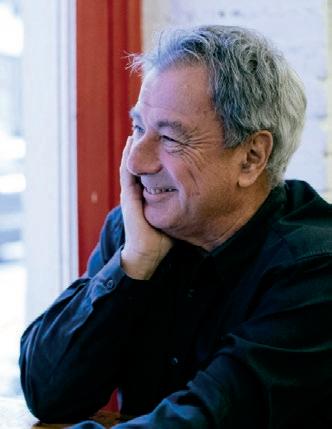

And after considerable milling and swilling, the bride’s uncle, Pierre-Emmanuel, gathered us together on the patio, raised a glass of welcome and said a few words before inviting us to tiptoe into the enormous tent in which the celebration would unfold. In particular, he said how proud the family was to be having a Jewish ceremony on their grounds and how, during the war and the Nazi occupation, the Taittinger family had taken Jews in, sheltered them, and protected them until it was finally over and they could tentatively venture out again.
In the aftermath of the Hamas attack, the Israeli rabbi, who had flown in for the occasion, flew out almost immediately, called back as a reservist to serve in the Israeli army.
The cloud that hovered never vanished but it also never eclipsed the joy, the welcome, the sense of love, of history, of continuity. At least half the guests had a more than nodding acquaintance with the Holocaust. Their parents/ grandparents had survived by miracles and scattered across the globe. And here we were, children of survivors, children of protectors, witnessing the coming together of a third or even fourth generation, to assert that even in the wake of terror, life can triumph.
PAULINE LETTER
08 ATRIUM SPRING / SUMMER 2024
David Abulafia’s Atrium Notes
My memories of St Paul’s, which I knew in its Hammersmith days, were of a tolerant world. There was plenty of lively political debate by the time I reached the Eighth Form, both informally and in the two debating societies, the Union and the Chesterton Literary and Debating Society – more likely to become heated in the latter, which mainly catered for younger boys. But overall, the mood was tolerant even of those such as myself who were Guardian readers – in those days, that is; nowadays I freely confess that my loyalties have shifted and I often write for the Telegraph and the Spectator. My erstwhile socialism was washed out of me at Cambridge, seeing student radicalism at work in its silliest and most self-important form, such as pointless and self-important telegrams to Ho Chi Minh supporting his side in the Vietnam War.
At a time of rising antisemitism, I am bound to ask myself whether it was ever a problem when I was a pupil at St Paul’s. I know that one or two OPs have reported that they did experience antisemitism, but apart from a couple of ignorant and unfunny remarks by contemporaries about Jews and money, my impression is that it was rare among the pupils. There was a famous incident when Sir Isaiah Berlin resigned from his position as a Vice President of the Old Pauline Club, having discovered that there was what was often described as a maximum Jewish quota for entry into the School. My understanding is that it was in fact a nonetheless highly questionable quota for pupils of non-Christian faiths, but in those days most of those pupils were Jewish. Some of us were under the illusion that when John Colet established the School for boys of ‘all nacions and countres’ he added the words ‘even the Turke’, but that was a sweet fantasy. For although he wisely separated the School from the cathedral, it was still a Christian foundation and that apparently
remained the excuse for the quota. By the late 19th century a number of public schools such as Harrow and Clifton made an effort to attract Jewish boys. But Jewish parents were more likely to prefer what was predominantly a day school than a boarding one. The tight family bonds within Jewish families did not favour boarding. St Paul’s was the gainer from that.
Indeed, Jewish prayers were held daily in ‘Red’ Brown’s room – he was a somewhat irate Maths master of indeterminate age; and many Jewish boys preferred to sit out the Latin prayers which took place in the Great Hall by catching up with their homework or gossiping in the school theatre instead. There were also optional vegetarian lunches available for Jews, Hindus, Muslims, Buddhists, etc. One had to leave one’s table briefly and queue up in the kitchen to collect one’s food, which would prove to be one of the following: cheese on toast; poached eggs on toast; fried eggs on toast; scrambled eggs on toast; grilled tomatoes on toast; mushrooms on toast; baked beans on toast; tinned spaghetti on toast; only a very occasional curry was not on toast. If anyone who took part can remember other haute cuisine on toast from those days, I would be glad to complete my carte du jour végétarienne Saint-Paul. I remember my mother promising my brother, who is four years older, that his Pauline lunches would include nut cutlets and other delicacies. It was not to be. With luck, there was a fruit crumble for everyone afterwards; but more often it was a dreary rice pudding (which I now like a lot, when properly done), or even tapioca or sago pudding (now museum pieces, though I tried sago in Singapore not long ago and am still baffled by what it is).
Nor did any of the masters I knew display any antisemitism or racism. The High Master, Tom Howarth, was a

devout believer in meritocracy, whatever a boy’s background. I’m glad that the School has a generous policy of support for those whose parents might seem to earn quite well but are actually members of the squeezed middle. For nine or ten years I was a governor of an excellent school that in many respects models itself on St Paul’s, and every year we reviewed the school fees. I would make my standard speech about the squeezed middle, but another governor, a wealthy man with a villa in Tuscany –personally very agreeable – countered my arguments by insisting, “Well, they can give up their skiing holiday at Christmas.”
Ancient schools and universities take pride in their arcane terminology, and I have been wondering how much there was and is at St Paul’s. The very fact that there is a High Master and Surmaster is distinctive (there is only one other High Master anywhere in the country). When the School stood in the shadow of St Paul’s Cathedral the term High Master possessed a literal meaning, as he sat on a sort of throne at the end of the great Schoolroom looking down on his 153 pupils. Then there are the ‘Remedies’ that have to be requested by a tame bishop, and the apparently unique numbering of forms, with a sixth where others would have a fifth, no seventh and the eighths above that. Another esoteric term is Apposition, which outclasses any mere Prize-Giving. I was delighted to be the Apposer in the last year as High Master of my former Cambridge colleague Mark Bailey. The presentations by pupils were astonishing in depth and range. The ceremony has changed over the years, but it still acts as a powerful reminder of the continuity and academic distinction of a great institution, conveying a sense of belonging to a community that has existed for over 500 years while also adapting to change.
09
Briefings
Michael Oliver (1946-47) Atrium Contributor Pauline Pianist
I never met Michael but felt I really got to know him and his partner Jeremy through our email correspondence and his contributions to Atrium. So, it was a day of great sadness when Jeremy’s email arrived last summer telling me of Michael’s death aged 93. Michael’s obituary appears later in Atrium
Michael wrote beautifully. His copy needed little editing. His writing shone a light on his character –gentle, effective, modest, good and fine.
This is the gobbet he provided for Atrium’s contributors’ section. His modesty is evident. Michael was clearly a man of eminence in the legal and arts worlds.
Michael Oliver left St Paul’s and went to a solicitor’s office where he worked for several months until he was accepted to sign articles for five years. Then he practised in London as a solicitor. Michael helped Michael Croft to found the Youth Theatre – later The National Youth Theatre – of which he became chairman. He was elected to the Board of The National Theatre and assisted with the development of the British Academy of Film and Television Arts in the UK and was a founder of it in the USA when later he went to practise State and Federal law there. After ten years in the USA, Michael returned to London where he practised law until he retired to live permanently in Italy.

Aron Goldin (2014-16) has released his debut album as a pianist.
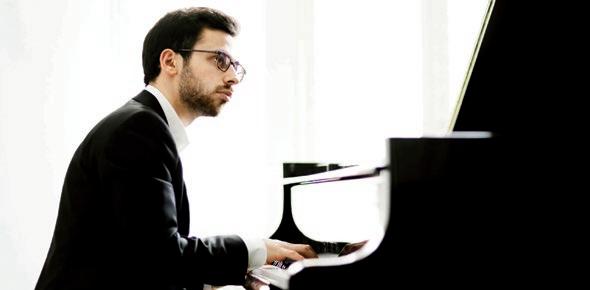
The album of art-song around the theme of exile, titled ‘Homelands’, was produced by Grammywinning producer Simon Kiln and was released in October 2023 by record label, Rubicon Classics. In the album, Aron accompanies an ensemble of singers, featuring tenor Ian Bostridge.
“The album grew out of a concert I gave with Ian and actor, Sir Simon Russell Beale, which raised over £200,000 to help evacuate over 450 Afghan schoolgirls who were fleeing persecution from Kabul to a new life in Canada,” Aron said. “As such there is a wonderful story and spirit behind the album.”
Since leaving St Paul’s School in 2016, Aron has studied English at Trinity College Cambridge, where he was a Senior Scholar. He then went on to train as a pianist at London’s Royal Academy of Music, where he gained a Masters in Piano Accompaniment, Professional Diploma, and Advanced Diploma with Distinction.
He has also performed at venues all over the UK, including London’s Wigmore Hall and Leeds International Concert Series. Aron is also a writer. He has been commissioned as a screenwriter to write scripts for a number of film and television studios, including Universal Studios, and his debut novel Murder in Constantinople, an historical murder mystery in which a wayward boy from London’s East End is pulled into the hunt for a serial killer on the eve of the Crimean War, has been bought in a two-book deal to be published in September 2024.
10 ATRIUM SPRING / SUMMER 2024
Pauline Professor Tideway’s Trophy
Alex Comninos (1992-97) was part of a team of Imperial College London clinicians and scientists to carry out some of the latest ground-breaking research into human reproductive behaviour.
They found that kisspeptin improves sexual processing in the minds of both men and women, which could help to treat low sex drive. They believe injections of the hormone has the potential to treat people with hypoactive sexual desire disorder, which affects up to 10% of people, but larger studies are still needed to confirm their findings.
Kisspeptin is a naturally occurring hormone that stimulates the release of other reproductive hormones inside the body and plays a crucial role during puberty.
Previous research found it can stimulate women’s ovaries to produce eggs, and it has also been shown to improve mood in healthy men, however this is the first time it has been tested on people with loss of libido.
“Our two studies provide proof-ofconcept for the development of kisspeptin treatments, as we provide the first evidence that kisspeptin is a potentially safe and effective therapy for both women and men with distressing low sexual desire,” Professor Comninos said. “We now plan to take things forward to hopefully realise the potential of kisspeptin therapeutics in psychosexual disorders – sexual problems which are psychological in origin, such as unexplained low libido.”
On completion of his medical degree at Imperial College London, Alex trained in Endocrinology and Diabetes and General Internal Medicine in leading London hospitals. He was then awarded an NIHR Academic Clinical
Fellowship to continue his research alongside his training, followed by a Wellcome Trust PhD Research Fellowship in 2011, NIHR Clinical Lectureship in 2015, Wellcome Trust Institutional Lectureship in 2016 and a Biomedical Research Grant.
Alex has authored more than 80 clinical and translational research publications in reproductive endocrinology, focusing on the influence of reproductive hormones on behaviour and bones, and has presented his work internationally. He continues to work in education as a Professor of Practice (Endocrinology) and Head of Academic Tutoring at Imperial College London, as well as publish research in notable journals alongside his clinical Consultant Endocrine practice.
Chris Harris (1955-58) explains a most unusual trophy’s journey to the School.
“When I was rowing with Tideway Scullers, we used to race a lot on the continent as there were no 2000 metre courses in this country. Ostend Regatta was one of our venues as it was easy and inexpensive to get to which was important as we weren’t sponsored in those days and had to pay our own way when we weren’t racing as GB. We won the elite 8s there on one occasion and this was presented to us. An unusual trophy. We were told that it was presented by SNCF and was a panel off one of their sleeping car doors! Anyway, we slung it on the boat trailer and got it home and as TSS didn’t have a clubhouse in those days, the crew took turns in looking after it in various flats and houses and it finished up with me.
They
found that kisspeptin improves sexual processing in the minds of both men and women, which could help to treat low sex drive.

I thought that this trophy should be doing some work rather than sitting about in my house so I have offered it to Matt Smith (President of St Paul’s Boat Club) to be presented annually for a School event yet to be decided. (Atrium Editorial Board suggests for the best ergo score). It measures 92 cms by 72 cms and weighs about 20 kgs”.
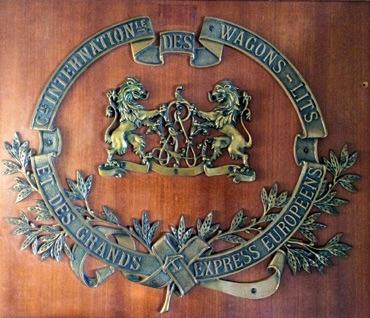
11
Alex Comninos
Captain Sir Alexander Schomberg, 1720–1804: the least celebrated of our quartet of OPs but nevertheless made an important contribution to Nelson’s navy. He started life in the Royal Navy in 1743 as a Midshipman, gained promotion to Lieutenant in 1747 and Post Captain in 1757. Serving under Admiral Boscowen he played an important role in the taking of the fortress of Louisberg in 1758 and a year later under General Wolfe took part in the Battle of Quebec and took the news of the victories in Canada back to London.
His importance is that he was an excellent seaman and highly skilled navigator and in 1789 wrote ‘A Sea Manual recommended to the young officers of the Royal Navy as a companion to The Signal Book’, which would almost certainly have been studied by Nelson, Troubridge and Thesiger. His last command was that of HMS Dorset, the yacht of the Lord Lieutenant of Ireland which precluded him reaching Flag Rank, but he became the most senior Captain in the Royal Navy and was knighted in 1777.
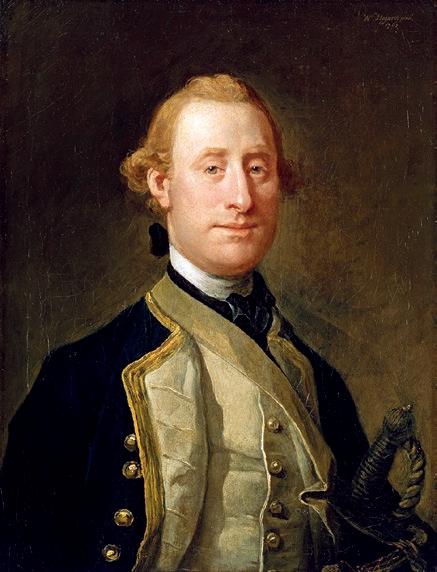
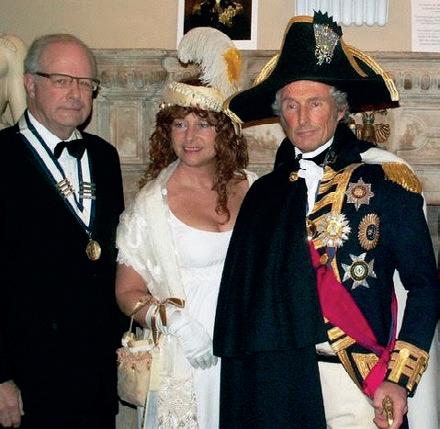
Nelson’s proposed visit to St Paul’s School. In the July 1914 issue of The Pauline there is a facsimile of a letter dated April 22 1802 from Merton signed by Nelson and Bronte to an OP, Dr Fisher, which was almost certainly prompted by Nelson’s OP friend and naval colleague, Sir Thomas Troubridge: it states ‘…it is possible I may visit St Paul’s School as the Lads have invited me if I am well enough but Easter has made me much indisposed.’ Nelson was indeed living at Merton at the time and other correspondence during this period reveals that his health was not at all good. He had to turn down a number of invitations in the following weeks, all for the reason of poor health, so it is almost certain that he did not actually make the visit, although the School and its ‘lads’ were certainly on his radar. The letter was subsequently bought by an OP and is now in the School’s Archives.
Nelson’s connection with St Paul’s continued into the 20th century. At the School’s 1921 Armistice Day service held in the Great Hall and after the High Master had spoken, the ‘Grand Dirge’ (or ‘Nelson’s Dirge’) composed by Thomas Attwood for the funeral of Lord Nelson was played.
Without Pepys, Nelson’s career and great victories over a century later would simply not have been possible.
Pauline Consultant
Srdjan Saso (1996-2001) was part of a team that carried out the first womb transplant in the UK.

The successful operation, in which a 40-year-old woman donated her uterus to her younger sister so that she could have children, took 17 hours.
The procedure has been hailed a “huge success” and “could see the dawn of a new era in fertility treatment. Mr Saso's extensive research and PhD work in the area of gynaecological and fertility sparing surgery laid the groundwork for this procedure and he was proud to be a part of the clinical team that carried out the successful 17-hour operation.”
Srdjan is a consultant gynaecologist and gynaecological cancer surgeon at Imperial College NHS Trust. His general practice focuses on the diagnosis and management of a wide-ranging number of gynaecological issues in women of all ages but with a particular focus on the treatment of gynaecological pathology, both cancer and noncancer, in young women who have not started or completed their families.
Srdjan is a founding partner of Chelsea Surgical Partners along with OPs Alastair Grant (1993-98), Paul Goubran (1996-2001) and Marcus Posner (1996-2001). He is also an Honorary Clinical Senior Lecturer at the Institute of Reproductive and Developmental Biology, Imperial College London.
13
Captain Sir Alexander Schomberg
Paulines Gallantry
Lieutenant Arthur William Swanston (1889)
Arthur William Swanston (1889), a lieutenant of the 6th Inniskilling Dragoons, was killed saving a private under his command during the Boer War in October 1900 and was buried close to where he fell at Chrissiesmere in South Africa. A box of flowers arrived at the local Post Office from 1903 to 1961 with a request that they be placed on his grave: pink one year and blue the next. The sender was Arthur Swanston’s fiancée who never married.
The Post Office and the locals decided to carry on the tradition after 1961 (presumably when Arthur’s fiancée died) by laying flowers on the grave on every 16th October and in recent years children from the local school have joined the commemoration and sing:
“My Bonny lies over the ocean; my Bonny lies over the sea.”
After St Paul’s, Arthur attended Loretto and then Jesus College, Cambridge and won a rowing Blue in 1898. His name along with ten other Old Paulines is engraved on the St Paul’s School South African War Memorial unveiled in 1906 by Field Marshall Lord Roberts. The memorial was purchased in the 1970s by Professor Alfred Ubbelohde CBE (1920-26), a Governor, and resides in his garden.
Arthur Swanston, and his elder brother James (1888-89), both served in the Northumberland Artillery Militia. Arthur is commemorated in the UK by a memorial tablet placed in Holy Trinity Church, Berwick on Tweed donated by his brother officers.

Born in Harrogate in 1917, Lane left St Paul’s in July 1934 and in 1935 applied for a short service commission in the RAF and started training in March 1936.
He joined 66 Squadron in January 1937 and was posted to 213 Squadron in March 1937 at its reformation at Northholt. He then flew out of Duxford as a Flight Commander and took temporary command when the CO was killed over Dunkirk in May 1940. Lane married the racing driver Eileen Allison just before the Battle of Britain in June 1940. He was awarded the DFC in July 1940.

Lane was given command of 19 Squadron in September 1940 when the CO was killed. He was shot down on 8 November and made a forced landing at Eastchurch. Posted away from 19 Squadron in June 1941, Lane went to HQ 12 Group, Watnell on staff duties and then Air HQ Western Desert in January 1942, moving to HQ RAF Middle East.
In July 1942 he returned to the UK and in December 1942, took command of 167 Squadron at Ludham. Four days later he took off with three other pilots on an operation over Holland. After an engagement Lane had disappeared and despite a search, he was not seen again. He is remembered on the Runnymeade Memorial Panel 65.
A permanent memorial plaque was unveiled on Lane’s former home in Pinner in 2011, 69 years after his death. A crowd of about 400 people attended the short ceremony which saw guests of honour Flt Lt K A Wilkinson RAF and Mr John Milne unveil the plaque. Flt Lt Wilkinson flew under Lane’s command in 19 Squadron and Milne was Lane’s Rigger, responsible for refuelling Lane’s Spitfire and the repair of its airframe.
Lane wrote Spitfire! The experiences of a fighter pilot published under the pseudonym of B J Ellan in 1942.

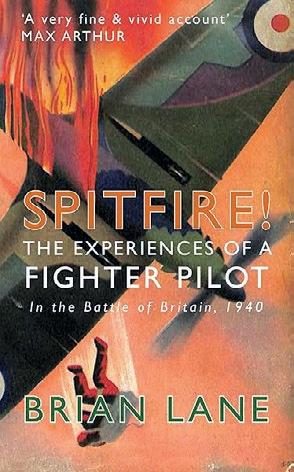
14 ATRIUM SPRING / SUMMER 2024 BRIEFINGS
Squadron Leader Brian ‘Sandy’ Lane DFC (1931-34)
Pauline Altars
“An unfurnished interior is just an empty space. Furniture articulates and, with luck, embellishes that space; it gives it meaning and enables it to be capable of being inhabited. Conversely, inappropriate furniture can dramatically diminish a building, not only aesthetically, but also for those that use or manage it”. This is how Luke Hughes (1969-74) in 2021 described the furniture he designed in the new School Chapel at St Paul’s. It is worth a visit.
His 2023 Christmas card to Atrium highlights nine altars he has designed. The range and variety are stunning, from the simplicity of St Giles to the colours of Ely.
Luke is the Founder and CEO of the eponymous Luke Hughes and Company which specialises in designing furniture in architecture, embodying the highest standards of British design, production and craftsmanship. The studio was established in 1981 in Covent Garden and has since designed furniture for more than 90% of Oxbridge colleges, 180 parish churches, 24 cathedrals, five Royal Palaces, nine synagogues and more than 900 boardrooms.
Pauline Appointments
Tom Adeyoola (1990-95) has been appointed as a non-executive director to the Board of Channel 4 Television Corporation

Tom is a technology entrepreneur with 25 years’ experience in new media, disruptive technology and business strategy. Tom brings experience in the media and entertainment business through his roles at Filmbank Distributors and Inspired Gaming Group. He launched Metail, a 3D and fashion AI scaleup. Tom has also served on charity, non-profit, high-growth company and public advisory boards. He is currently co-founder of non-profit Extend Ventures which diversifies access to finance for underrepresented founders. Tom is a Governor of St Paul’s, an OPC Vice President and a founder of Capital Angel Networks.
Christian Nourry (2010-15) has been appointed Chief Executive of Queens Park Rangers
Christian has worked in football for five years, most recently with football data analytics and advisory business Retexo. His role included advising major European clubs and owners and leading an audit of QPR in 2023. He is the youngest chief executive in English football.
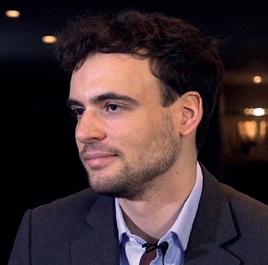
Previous CEO (now Chairman) Lee Hoos told the QPR website: “Christian is extremely competent and bridges a number of gaps that need to be bridged.”
The range and variety are stunning, from the simplicity of St Giles to the colours of Ely.

Christian said: “I am looking forward to working for QPR and to leading the club as it enters a new chapter, one which the fans deserve. I am happy to be continuing the work which I have already been undertaking with the owners following their deep period of reflection since the end of last season. I am truly excited by the next-generation football project that we are building together.”
Stephen Baldock (1958-63)
Stephen has been awarded a British Empire Medal (BEM) for services to the community in his local village, Over Wallop. Stephen is a churchwarden at St Peter’s Church in the village as well as an OPC Vice President.
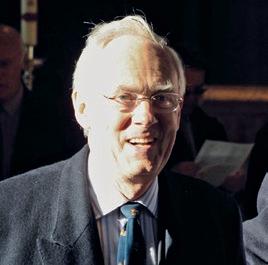
15
Luke Hughes altars
Pauline Books
Atrium (unless otherwise described) uses reviews provided by authors or their publishers.
Richard Dale
Random Walk. Memoir of an Itinerant
John Matlin (1956-61) reviews his Coletine friend’s memoir
“A Life Well Lived”
Apart from the North and South Poles, no part of the globe seems to have escaped Richard Dale. He has spent a lifetime travelling. When he was 18, he went on an extensive trip to the Middle East, followed over the decades by travels to every cardinal point of the compass. Hence the title of the book. However, the walks were not necessarily random. His many journeys to America and the Far East were for business but he has spent much time in France on vacations. He and his second wife, Niki, have a passion for long distance perambulations, including the Atlas Mountains and the Camino to Santiago.
Dale is a Renaissance man, someone who has developed an expert gaze and manifold skills. At various times, he has been a brilliant and successful student, publisher, investment banker, journalist and an acknowledged academic financial expert, both in Washington D.C. where he held a much-prized Rockefeller fellowship, and as a Professor of International Banking at the University of Southampton. If that was not enough for his CV, in retirement he has become a respected historian. It quite takes one’s breath away.
Dale has led a life in the spotlight. Leaving a successful career at Rothchild’s for health reasons, Dale climbs the stairs of academia. Through careful research, he publishes a warning that deregulation, the Big Bang, will lead to a massive financial crisis and collapse. He predicted what occurred in 2008. He delights in the tale of an academic who took an opposing point of view and how the man, very much
in the minority and whose attack was vitriolic, was ultimately discredited.
One observation: Dale often writes like the lawyer he is, not a journalist. We read about who, what and where and Dale is meticulous to include all the names and facts of an event or encounter, often with humour and self-deprecation. But sometimes, we are left wanting more of the why. For example, Dale pulls no punches in the story of his parents’ broken marriage and his own but there is scant reference to Dale’s relationship with his own children, save for the wedding of his daughter. Also, he has a collection of friends from student times, most of whom are alive. While he describes them still having lots of fun together, we are not told much about their lives. It is, of course, possible he is respecting their privacy, that this is not the reader’s business.
Dale describes his parents’ divorce when he was very young. His mother proved to be a determined, loving and caring person despite continual financial pressures. Dale’s relationship with his socialist father was strained but he writes how their differences became resolved over time. Dale is as honest as he can be regarding his own divorce. For me, these aspects of the story show the writer’s humanity.
I also enjoyed the account of Dale’s “gap year” in 1961 at the kibbutz, Beit Ha’emek, where he learns what are now called “life lessons.” Arguably, Dale took time out two decades before gap years became fashionable.
I have to declare an interest. In 1951, Dale was sent as a boarder to Colet Court, where I attended at the same
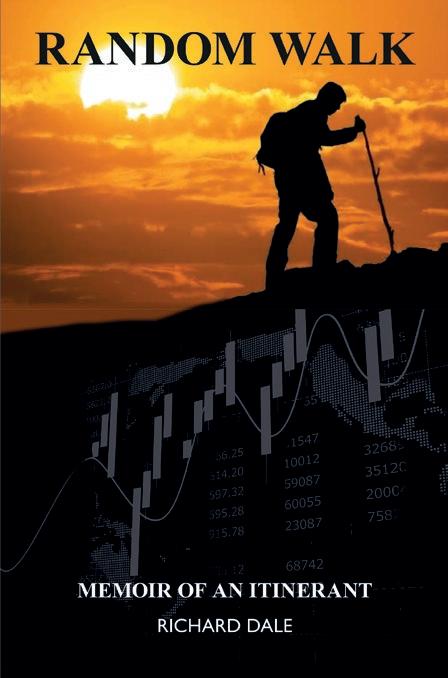
time. He recalls the teachers, who I had forgotten, except the mercurial John “Alex” Alexander who could both entertain and terrify a pupil at a moment’s notice. Dale is kinder about his experience at Colet Court than I would be.
Dale is to be congratulated for giving us an insight into his fascinating life. As he says in his preface: “There is no reason for me to write this memoir other than that, as I pass eighty and contemplate mortality, I wish to record my memories of a turbulent but fulfilling life.”
16 ATRIUM SPRING / SUMMER 2024 BRIEFINGS

John Matlin (1956-61) Injunction
Arthur Hawkins grows up in poverty in London’s East End. On his 15th birthday he is forced to leave school. He gets a job as a clerk in a large insurance company and does well. He is spotted by a Lloyd’s of London syndicate and eventually promoted to underwriter, where he is involved in many of the Lloyd’s scandals of the 1980s.
Popular novelist, Charles Pearce, is “door-stepped” by the media after walking out of a television interview. A newspaper decides to find out why Pearce is so secretive about his private life. The story of Pearce’s life of rags to riches is slowly uncovered as is his murky past in the world of insurance and finance. Pearce rises from poverty to affluence but at an enormous personal cost.

Paul Watkins (1952-54) Go Greyhound, Go!
Paul Watkins trained as a graphic designer and worked in publishing and advertising before undertaking his great American adventure in 1965. On his return he established a publishing company, Format Books, and built a career in designing books and writing travel guides.
In his new travel book, he recalls the miscellany of characters and situations which shaped his journey around the United States by Greyhound bus in 1965. Written at the time, but only published now, Go Greyhound, Go! pays tribute to the ‘travel of the century’ which gave visitors the opportunity to explore the country for ‘99 days for $99’ (then £35).
This brought some memorable moments for the wide-eyed young traveller, including unnerving nights in Greyhound bus station waiting rooms, an introduction to gay Washington, skin-diving among hammerhead sharks on the Florida Keys, scary incidents in New Orleans and Las Vegas, a night out in the Painted Desert in Arizona, a meeting with Hollywood’s Daniel Boone, and a hairraising stand-off with a pet jungle cat in a blacked-out New York apartment.
Along the way the author survives by picking tomatoes in California and washing dishes in New York. He also visits the Empire State building (then the world’s tallest building) and the Hoover Dam and explores the Grand Canyon and major National Parks.
The book packs in a remarkable amount of fascinating detail about American history, culture and society in a style that is an interesting mixture of Alistair Cook’s Letter from America, Bill Bryson’s travel books and conventional travel guides. Illustrations are by the author.
Reviewer’s note: as someone who undertook a similar (but less extensive) trip across America in 1969, reading this book provided a fascinating and nostalgic trip down memory lane.
Brian Jones (1961-66)
17

Darian Leader (1978-83) Is It Ever Just Sex?
Is It Ever Just Sex? Is a thoughtprovoking study of why we have sex, from award-winning psychoanalyst Darian Leader.
‘It was just sex.’ It is a familiar claim. But is it really possible?
The old idea that sexuality is a smouldering, animalistic force within us, desperate for release yet restrained by social forces, has little to support it. Bodies are not just sticks that make fire when you rub them together, and the pain, heartache, and regret that can accompany the highs of sexual excitement show us that much more is at stake.
So, what are we really thinking about when we think about sex? And what are we really doing when we do it?
As acclaimed psychoanalyst Darian Leader argues, with his trademark clarity, energy and wit, there is no such thing as ‘just sex’. It is always about so much more than that – about phantasy, anxiety, guilt, revenge, violence, love – and Leader draws on his analytic experience, historical research and case studies to explore their importance to every aspect of our sexual lives.

Benedict Pringle (1999-2004) Primed
Benedict Pringle is an advertising professional and political consultant. His career has been spent at top-tier advertising agencies working with many of the world’s best known commercial brands. He has also consulted on some noteworthy election campaigns. In 2008 Pringle founded a popular blog on political advertising and has since frequently appeared in the media as an expert on political marketing. He is also a co-founder of the non-partisan lobby group Reform Political Advertising.
Primed reveals the five underlying candidate narratives for winning a party’s nomination to stand in a general election.
In fiction, the idea that there are a limited number of original basic plots and character archetypes is well known. In politics, it is generally accepted that a brilliant narrative is a fundamental aspect of a persuasive election campaign. But nobody has developed a universal way of applying classic storytelling principles to primary election campaigns – until now.
Readers are provided with a new framework that codifies successful primary election campaign narratives and helps candidates to develop their own electionwinning stories.
The framework draws on psychological and political marketing theory. It can be used across the political spectrum, in different geographies and at all levels of primary election. The framework is demonstrated through case studies of the primary election campaigns of Hillary Clinton (2016), Donald Trump (2016), Bernie Sanders (2016), Pete Buttigieg (2020), Joe Biden (2020), David Cameron (2005), Jeremy Corbyn (2015), Boris Johnson (2019), Lisa Nandy (2020) and Liz Truss (2022).
‘One of our most important contemporary thinkers’ GUARDIAN
18 ATRIUM SPRING / SUMMER 2024 BRIEFINGS
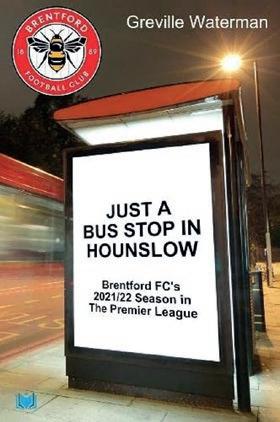
Greville Waterman (1968-72)
Just
a Bus Stop in Hounslow: Brentford FC’s 2021/22 Season in The Premier League
31,449 days. After last winning promotion to the First Division in 1935, it took Brentford 31,449 days to retake their position in the top tier of English football, when they hosted Arsenal on a balmy night in August 2021 and surprised a worldwide audience of more than a billion fans with a famous victory.
But would the stunning opening night triumph prove to be a false dawn? How would the Bees – Just a Bus Stop in Hounslow – cope with the challenge of the Premier League where they would face clubs whose resources, squad depth, and quality dwarfed their own? Could a team that began the season without a single player who had started a Premier League match compete on a level playing field? Would Brentford’s revolutionary methods – under charismatic manager Thomas Frank – eye-pleasing play, and tactical nous be enough to ensure Premier League survival?
Written with the full co-operation of the club and including exclusive interviews with players and officials, Just a Bus Stop in Hounslow follows Brentford’s debut season at home – in their beautiful Brentford Community Stadium – and away, as they took on the 2021/22 season. Detailing matches, rumours, signings and departures –including the arrival and impact of Christian Eriksen – and offering behind-the-scenes information plus historical insights, author Greville Waterman paints a fascinating picture of a club with an indelible bond, connection, and sense of unity with its supporters and local community. Just a Bus Stop in Hounslow? Absolutely not!

Alex Edmans (1993-98)
May Contain Lies: How Stories, Statistics, and Studies Exploit Our Biases – And What We Can Do About It
A ground-breaking book that reveals why our human biases affect the way we receive and interpret information
Our lives are minefields of misinformation. Stories, statistics and studies lie to us on a daily basis. Not only this but, as Professor Alex Edmans reveals, our brains lie to us too. He argues that we need to acknowledge and understand the role that our own human biases play in interpreting and digesting the information that we consume. It is only when we do, that we can actively resist being manipulated, and make informed decisions that improve our lives.
This book is about misinformation … but with a twist. We often think it is about checking the facts, but the punchline of the book is that this is not enough. Even if the facts are 100% accurate, they may still be misleading –we make incorrect inferences due to our biases. The book goes beyond business to politics, science, health advice, even parenting. It goes beyond thinking smarter as individuals to creating smart-thinking organisations that harness diversity of thought, overcome groupthink and embrace challenge.
‘Not only brilliantly researched and written but immensely practical in helping guide us through this thicket of (mis)information ... I am already drawing on its insights in my everyday decision-making’
ANDY HALDANE, former Chief Economist at the Bank of England
19

School Rowing’s
‘Holy Grail’
The Princess Elizabeth Challenge Cup was introduced into the Henley Royal Regatta in 1946 and first won by St Paul’s in 1950. Since then, it has remained schoolboy rowing’s ‘holy grail’. And it is from there that we shall begin our brief history. I am indebted to Chris and Adrian Harris, brothers at St Paul’s in the 1950s and 1960s. Chris (1955-58) sets the scene, one which will change very little until the 1970s.
“…as a result, while I was at School, I was rowing for the London Rowing Club and my school rowing consisted of sculling under the eagle eye of Wally Pearce. He, I think, was the glue which held the whole of school rowing together.”
“We used to walk or cycle down from the old school and change at the boathouse in an environment which was Dickensian. Wally used to carry out
his work in the boathouse in Stygian gloom in conditions which would have caused heart attacks to today’s health and safety officers had they come across them. If that didn’t kill them off then Wally’s tea certainly would have. He would fill a black rusty kettle with river water, throw in a handful or two of loose tea, boil it on the stove and then dish it up with condensed milk. Best tea I’ve ever tasted.
20 ATRIUM SPRING / SUMMER 2024 IN CONVERSATION
Jonathan Whybrow (1974-1978) discusses rowing at St Paul’s with Chris and Adrian Harris, David Porteus, ‘Doc’ Mayfield and Matt Smith
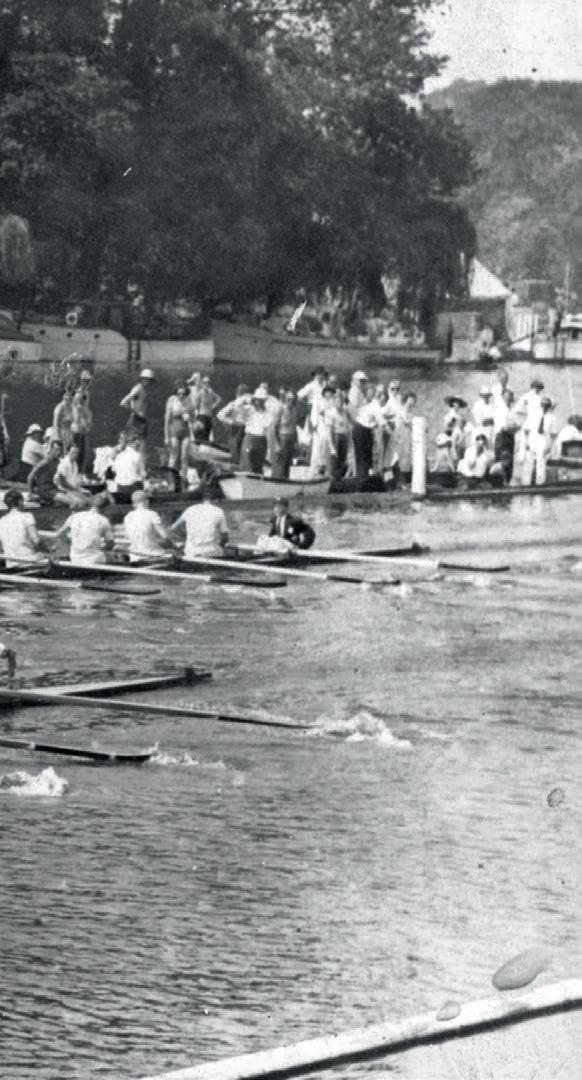

All the boats of course were wooden in those days. I don’t know how many of the crew boats were clinker and how many shell. The sculling boat I used was a whiff, i.e. a clinker built single. I can’t remember exactly the kit which we had. I think we wore a cotton T-shirt with rugby shorts and a brushed cotton zephyr. If it was really cold, I think we had cotton track suit bottoms. No proper waterproof clothing nor windproofs, no buoyancy aids in the boats – it’s amazing that any of us survived!”
The theme continues into the 1960s when Chris’ brother Adrian (1960-64) arrived at St Paul’s.
“Rowing at that time had not really changed that much since the early 1900s. It was well before the advent of fibreglass, let alone carbon fibre, lycra, thermals, electronics, health and safety, racing licences, video or coaches’ launches. Boats were of wood – clinker for Colts (J16). Oars were of the unchanged ‘toothpick’ design (though ‘tulips’ did arrive in 1963), the ‘leathers’ on the oars were actually leather, and the gates were
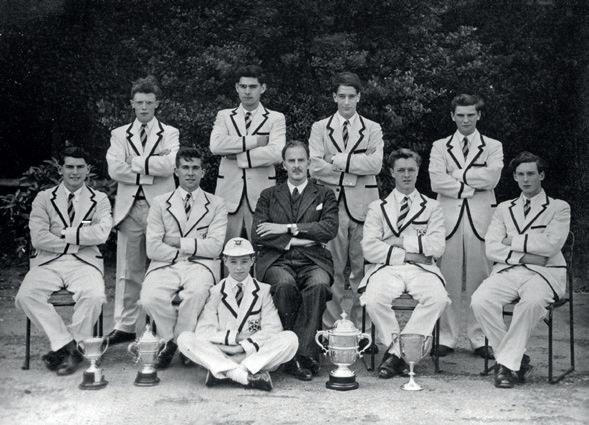
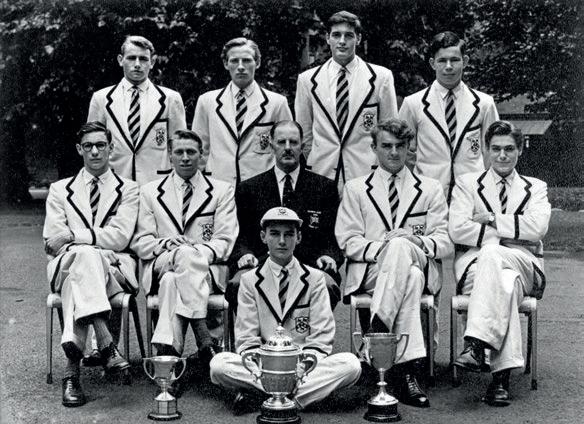
brass, as were the runners and wheels. Coaches cycled along the bank and if and when they could see us, shouted instructions through megaphones.
The old boathouse can still be seen on the other side of the river, albeit converted to what must be a lovely house. It had four sets of boat racks, with four boats on each rack – i.e. a total of sixteen boats for the whole club! As I recall, there were eleven VIIIs, two ‘fine’ sculls (very old and unmatched), three ‘rum-tums’ (clinker sculls), two tub pairs and a tub four. That was it – no quads, pairs, doubles etc. No ergos, weights, gym area or equipment of any sort. The top floor was the changing room for the 1st and 2nd VIIIs and the middle floor was for the rest. Both had torrential showers –wonderful until the hot water ran out –and drying rooms with an indescribable ambiance, as wet kit was just left in there after an outing until the next one, and only taken home for washing at the end of term, by which time it had taken on all the characteristics of stiff cardboard. Bear in mind that the Thames in the 1960s was filthy, and that at low tide, we had to launch from the mud (and whatever!) on the foreshore. Don’t get me wrong – I enjoyed every aspect of it, and it was certainly a time when you could row for the sheer pleasure of it.
The boatman during my time was Wally Pearce, a Waterman with an extraordinary wealth of knowledge and experience, as well as the craftsmanship to repair and maintain what was an ancient fleet of boats. The 1st VIII boat was only replaced once during my time, the old boat being passed down through the ranks. To me, Wally was a mixture of a God, mentor and oracle, and it was probably his unofficial coaching of me in sculling that resulted in my being selected for the 1st VIII. The coaches at that time, amongst others, were the great Freddy Page, John Allport, Robert ‘Boggo’ Bennett, David Porteus, ‘Bunny’ Alden and Harry Quinn.”
During this period, St Paul’s enjoyed success in the major events, unmatched until recent times. The School won the Princess Elizabeth Challenge Cup (PE) in 1950, 1953 and 1957 and the Schools’ Head in 1950, 1951, 1956 and 1957. With the honourable exception of the 1979 crew that was successful in the
21
1957 1st VIII
Above left: The Princess Elizabeth Challenge Cup Above right: 1950 1st VIII Right: 1957 1st VIII
Special Race for Schools at Henley (a temporary arrangement whilst A Levels rendered participation in the PE impossible), success in these major events proved elusive until the end of the century. Nevertheless, rowing still proved a popular choice for a boy’s ‘half’.
David Porteus (Physics department 1964-2001 and President of the Boat Club 1970-90), picks up the story as we move to the end of the century, a time, especially in the 1970s and 1980s when equipment and training schedules changed dramatically. Hampton, especially, started the charge towards three term rowing.
“The new boathouse was built in the early 1970s (Author’s note; apart from changing the tank room into a gym, it hasn’t changed one bit since!). We could now row during lunchtimes and after school, as well as during a half. However, other schools were rowing five/six days a week as well. The light plastic boats and oars were introduced, the shapes of the blades changed to ‘hatchets’, with other variations. We too began to row three terms a year and the Amateur Rowing Association decided that physiologically sweep oars were bad for J14s and sculling in octuples was introduced, with St Paul’s being the first to use one.”
It would be remiss of me to fail to mention the importance that David placed on the cox – “he must be considered a vital link”. So much focus is on the physical challenge that the rowers face that one can forget the importance of the cox. Without a great cox to steer, motivate and, when necessary, make race calls, even the best crews will suffer.
Having navigated (excuse the pun) the change in equipment and the introduction of three term rowing which characterised the 1970s and 1980s, I now turn to Andy Mayfield (Doc) who was President from 1997 to 2007 having taken over from Tim Morland. It is easy to see how Tim moved both training and performance onto the next level.
“Tim Morland took over the Presidency of the Boat Club in the early 1990s. He set a high bar for his crews and the rest of the club too. Training now involved new heart-rate adjusted workouts – UT2, UT1 and AT. Once a week water sessions would

be followed by frame-by-frame video analysis in a classroom often exposing woeful timing and control of the spoon. The advent of the Concept 2 ergo introduced a new measured form of land training and club records soon followed. There was no hiding in the three seat having the odd ‘rest-stroke’, your power and mental resolve was on full display in the ‘tank-room’ in a 30 minute or 2km test. A seasonal weight programme formed the backbone of the land work, keeping the crews active after school when it was too dark to train on the Thames. There was also an increasing emphasis placed upon developing boat moving skills through

Training now involved new heart-rate adjusted workouts
– UT2, UT1 and AT. Once a week water sessions would be followed by frame-by-frame video analysis in a classroom often exposing woeful timing and control of the spoon.
the use of small boats and Tim began the long process of expanding the fleet, investing in new ‘plastic’ singles, pairs and fours. The systemic training yielded results. Both he and Michael Streat coached 1st VIIIs that went on to win Championship medals at National Schools Regatta, make it to the latter days of HRR and achieve medals at the Junior World Championships, the most famous being Simon Dennis (1989-94), the School’s one Olympian.
Winners of the Schools Head: 1946, 1950, 1951, 1956, 1957, 1996, 2003, 2014, 2018, 2024
Winners of Championship Eights (NSR): 2017, 2018, 2019
Winners of the Princess Elizabeth Challenge Cup: 1950, 1953, 1957, 1997, 2015, 2018, 2022
22 ATRIUM SPRING / SUMMER 2024
IN CONVERSATION
1950 1st VIII 1979 1st VIII
Andy Mayfield succeeded Tim Morland as President in 1997 the year St Paul’s won the PE for the first time since 1957. He continued the good work of his predecessor for the next decade. The number of boys choosing to scull in the Autumn term increased as did the fleet of small boats to accommodate them. The prelude to statuary Pauline fish and chips on a Friday lunchtime was the Hammersmith-Putney-Hammersmith competitive time trial in the single –results and rank order were on the changing room notice board by 4.15pm. Weight sessions were supplemented by the infamous ‘Big – 36’, a weight circuit with 36 repetitions per minute. Selection for the VIIIs boats was on based on seat racing and pairs matrices. Unsurprisingly, St Paul’s became a racy club and regularly challenged for the top spot in the country. But it was not just the 1st VIII that wanted success, all the club’s crews hoped to at least make their respective final at National Schools’ Regatta and be in the mix for a medal. This all-round success was built on the skill and inspiration of the club’s many dedicated coaching staff at the time, in particular: the internationally talented and experienced Suzanne Mackenzie; the first full-time professional rowing coach Ben Reed; Barry BathTaylor, boatman, sculler and expert coach; the enthusiastic mathematician Paul Motion and latterly the return to
the club as coach, the bowman of the 1997 VIII, Charlie Bourne (1993-98). During Doc’s time as President the club won the SHORR and plenty of Championship events, contributed a significant number of athletes to the GB Junior Worlds team and made the latter rounds of HRR, but they never repeated the win of 1997.”
To conclude and reflect on the remarkable success of the 2000s, I am grateful to Matt Smith, the current President. This period contains details of a sequence of wins in the Princess Elizabeth Challenge Cup at Henley which neatly mirrors the success of the crews of Freddie Page 70 years ago.
He starts, “Once Andy Mayfield had become an Undermaster, the Boat Club needed a new President. Henry Adams arrived in 2007 to teach biology and to take on the role. His remit was to change the shape of the club and establish rowing as a major sport within each year group – the growth that has brought the club to its current, unprecedented size began here, though results took a little while to follow. Notably, Henry also brought in Dickie Twyman as Boatman, which began an influx of Tideway Scullers professional coaches who would drive the performance aspects of the club for several years.
After Henry came Karthik Tadinada, under whose Presidency Bobby Thatcher arrived as 1st VIII coach in

2022 1st VIII
To find out more about how to support the school’s current boathouse appeal, please email community@stpaulsschool.org.uk
time for the 2011-2012 season. 2012 was a watershed with Bobby’s 1st VIII making the Championship Eights final at NSR – the first appearance of an SPS crew in the final since 2006 – and Andy Mayfield’s last full season of coaching being crowned with a J16 Championship Eights gold medal (and a new course record). The growing club continued to become increasingly professionalised as Anthony Smith was added to the coaching team and Tom Killick took over as President. Smithy, Dickie and Mike Hennessey all contributed to increasingly regular medal-winning efforts in the junior year groups. By 2015, the groundwork had been laid and, despite the 1st VIII losing every race of the season bar one to Westminster, they took the Princess Elizabeth Challenge Cup at Henley, eighteen years after the last win. Once Paulines could see that success at the highest level of school rowing was within their grasp, a virtuous cycle began, massively encouraged by an active and generous parents’ group.
When Tom stepped down as President, the club was reorganised and Bobby became the School’s first Director of Rowing. In this period, US universities became increasingly favoured as destinations for top Pauline rowers, with a pipeline to Harvard becoming discernible. In autumn 2017, a group of athletes who had trained for years with Henley on their mind, headed to Boston and won the Head of the Charles Regatta – the first SPS win in the event. This was followed up with gold medals at the Schools’ Head and National Schools’ Regatta. This famous season was rowed out with a PE win in which the crew set course records at every timing point on the Henley course, in several cases breaking their own records from earlier in the week. Their final time lowered the old record by 11 seconds. The "Quadruple" was complete.
The Boat Club can now boast 15 VIIIs, showing strength in depth, and fielded 113 pupils at the National Schools Regatta in 2023. Since 2018, medals at every age group have flowed into the club and the 1st VIII has featured in all but one Henley final (adding one more win in 2022) and establishing St Paul’s as the school to beat in the world of junior rowing.”
23

script.’ Was it hard to bow out as a lead actor? ‘Well, I felt I was pretty good on stage but on screen I was maybe a bit self-conscious, so I felt happier directing.’
His next film was an adaptation of An ldeal Husband, a play which he also knew well from his acting days. Period drama was having a moment in the mid 1990s, wasn’t it? ‘Yes, one factor was the backing of some big producers including Harvey Weinstein, after his success with Shakespeare in Love ’. Unlike other studios, he explains, Weinstein would throw his weight behind small start-up projects and green-light them fast: ‘he was lively, dangerous, fast-moving.’ Hmmm. At this point I briefly wonder whether I should quiz him on the murky side of the movie mogul, and of the business in general, but frankly how does one start? So, we coolly ignore the elephant in the room. Parker also worked with Russell Brand on St Trinian’s, but – again – how does one raise the issue of showbiz sleaze without sounding priggish or accusatory? He is surely not answerable for the conduct of the men who have funded or acted in his films, and if I imply otherwise, he might ask me to leave his very nice home, to which he has kindly invited me.
Even after a few successes, there was little sense of security. ‘You’re always kind of bumping like a pinball, I find, in this profession, because there are moments when you’re hot and then
His latest film is The Great Escaper. Think Ferris Bueller with a walking stick.
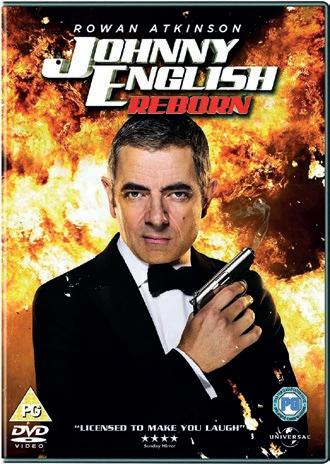
you’re cold very quickly. The vast majority of things one attempts never get made. It leaves quite a few scars on one’s psyche.’ Even when a film does get made there are deep frustrations, he tells me. One of his most artistically ambitious projects, a film about Orson Welles called Fade to Black, did not work out as he had planned – as well as losing him money it left him feeling artistically dissatisfied: he feels his original vision got rather lost amid the complexities of film-making. I am surprised by his honesty. It would be easy enough to give the impression that he enjoys a perfect mix of commercial success and creative fulfilment, but it is a role he declines.
His recent films have mostly been comedies. ‘Comedy’s always been important to me. The Marx Brothers were my favourite growing up, the anarchy of their humour obsessed me – and the warmth of it also interested me.’ Appropriately for a school movie, St Trinian’s was a collaboration with his old team-mate Barnaby Thompson, who now ran Ealing Studios. ‘I wasn’t sure about it at first, but Rupert Everett was involved, which won me over. It was great fun to make, and it did well despite not being very popular in America.’
But he has mixed feelings about his comedic drift: ‘Partly I’m wary of being pigeon-holed. I really respect the craft of comedy, but the stakes are high – you’re very exposed – if you fail and people don’t laugh it’s much more noticeable than failing in drama.’
He took on Johnny English Reborn partly for the chance to work with Rowan Atkinson, but also to show that he could handle a big budget. ‘In fact, having a big budget is easier, it means you have more money to play with, and you can reshoot.’ A decent budget is a thing of the past for an independent film, he tells me. When he started out, a budget of about ten million was normal, but now a budget is either much less than that, or much more.
After Johnny English he spent a long time trying to make a serious war film, but it did not work out – ironically, he ended up making Dad’s Army instead. Then came Swimming with Men, a comedy with a bit more of a deep end. (I wish I had thought of that joke at the time.) What drew him to a story about middle-aged male depression? ‘Rob Brydon, mainly – he was already on board
26 ATRIUM SPRING / SUMMER 2024
THE INTERVIEW
and when I met him, I felt we’d work well together’. Did it help the film get made, that mental health was becoming a hot issue? ‘Yes, a film has to be sold upfront, and you’re always asked, ‘why now?’ And in some ways, it felt zeitgeisty – but maybe it didn’t help that it was all men, when women in sport was the big thing.’
His latest film is The Great Escaper, a gentle true story about a D-Day veteran, played by Michael Caine, who absconds from his care-home and takes a ferry to Normandy to join the commemorations of the battle. Think Ferris Bueller with a walking stick. His wife is played by the late Glenda Jackson, her last role. ‘I was nervous about the script – it could have been very cheesy, sentimental. But I had a lot of respect for its script writer, Billy Ivory, and worked with him for about a year, getting it right. It was crucial to get Michael involved, partly because it wouldn’t have secured the funding otherwise.’ The result is an impressive portrayal of old age: whether it is the finely-tuned script or the genial performances of Caine and Jackson, there is a refreshing absence of patronising treacle, just solid respect for well-lived lives (in fact, it is the flashbacks to the couple’s youth that feel a bit clichéd).
I then ask a question that comes out slightly wrong, and maybe sounds a bit impertinent. Is there a commercial end where he refuses to go? Does he get offers he turns down? ‘Oh yes, absolutely. I don’t think you could do it unless you believed in it, because it takes so much out of you, it’s such an undertaking. I turned Johnny English down four times until I met some of the people involved and felt I could do something interesting with it. Though it’s an accessible format, I felt I could do something a bit more challenging, bring some pathos to the main characters. So, I’m interested in blurring the edges –making the sophisticated material more accessible and vice-versa.’
He now has a production company that makes TV as well as film – ‘because that’s where a lot of the talent and the financing is. And I enjoy the opportunity to tell a story at greater length: it means characters can surprise you. But I think a lot of television drama has been overhyped, and maybe the mood is turning back to ‘singles’, as they now call films. It’s in films that the appetite for storytelling is still strongest. I think of it as sitting round
Appropriately for a school movie, St Trinian’s was a collaboration with his old team–mate Barnaby Thompson.
the camp-fire and saying, I’ll tell you a story with a beginning, a middle and an end.’
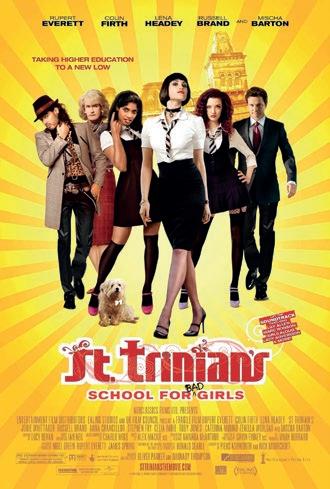
I wonder whether he misses theatre and get a mixed answer. In theory he would love the chance to spend proper time on a script with actors, he says, but it is hard to see how he would find the time. And he is not particularly inspired by his recent trips to the theatre: ‘too often it just feels like people shouting at each other. If you see a few dud shows in a row it’s hard to keep the faith.’ But he remains a true believer in theatre’s educational power. ‘I think it’s important that schools don’t just focus on polished productions for the talented and enthusiastic few but try to get as many people as possible involved. Because it’s a unique way of learning, of imagining other lives, literally stepping into other people’s shoes. And the creative collaboration – nothing’s as fun as that.’ Except maybe rugby?
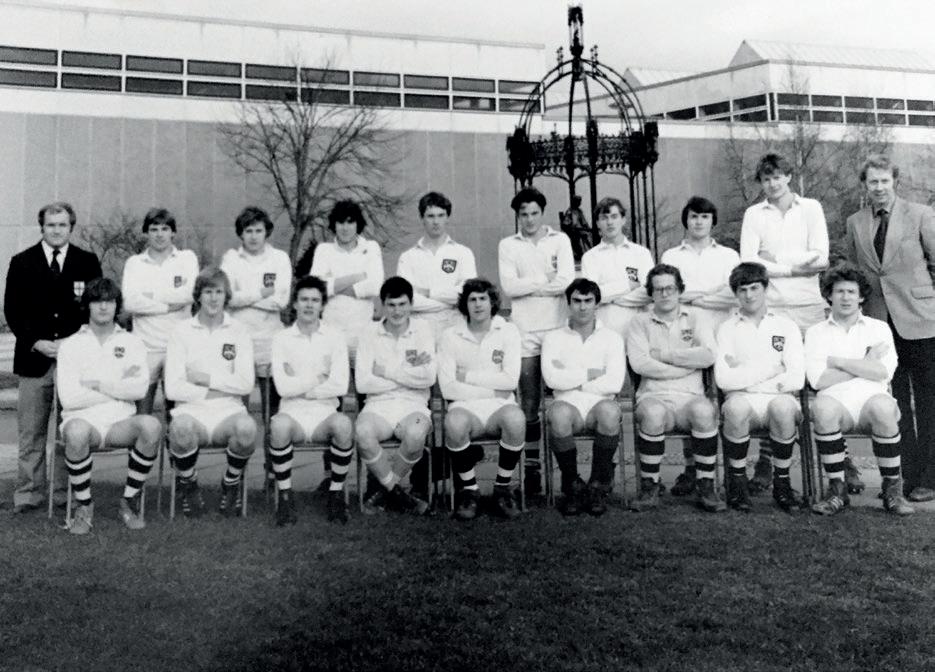
27
Unbeaten 1979 1st XV
OP X AI
Last year the UK government hosted the inaugural Artificial Intelligence Safety Summit. Attendees included representatives from international governments, leading Artificial Intelligence (AI) companies, civil society groups and experts in research. Its aims were two-fold: to consider the risks of Artificial Intelligence – especially at the frontier of development – and discuss how they can be mitigated through internationally coordinated action.
The summit was hosted at Bletchley Park, a pleasingly neat choice. Bletchley Park was the principal centre for Allied code breaking during the Second World War (chosen for its equidistance between Oxford and Cambridge universities). Necessity being the mother of invention, this period is widely seen as the fundamental acceleration of the development of modern computing. Bletchley was the home of Colossus, a large computational machine that used vacuum tubes to perform mass counting tasks, thus making it the world’s first programmable, electronic, digital computer (although strictly speaking it was still programmed by switches and plugs and not by the stored programmes that became so
prolific in the following generations). It was developed by British codebreakers and Post Office engineers to help in the breaking of the Lorenz cipher, a more sophisticated iteration of Enigma. Skip forward 70 odd years to the venue hosting a discussion of the latest and furthest advancement in programmable behaviour, in the literal and figurative shadow of Colossus.
Stuart Russell was one of the more high-profile invitees. Rightly so – he has quite literally written the book on Artificial Intelligence. He is a co-author of the definitive textbook Artificial Intelligence: A Modern Approach (with Peter Norvig, now in its fourth edition). He has been present at the forefront of AI development for the best part of
28 ATRIUM SPRING / SUMMER 2024 PAULINE PERSPECTIVE
Neil Wates (1999-2004) discusses all things AI with Professor Stuart Russell (1974-78)

Stuart Russell (1974-78) was one of the more high-profile invitees. Rightly so –he has quite literally written the book on Artificial Intelligence.
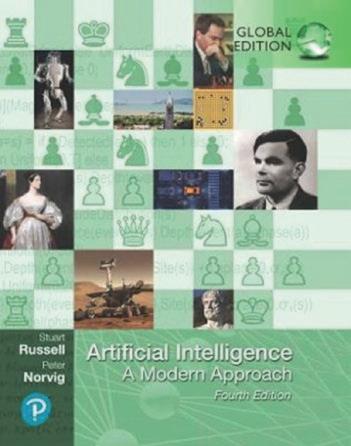
40 years – a professor of electrical engineering and computer sciences at The University of California, Berkeley since 1986, co-chair of the World Economic Forum’s Council on AI and founder of the Center for Human Compatible Artificial Intelligence. Stuart has also written Human Compatible which is aimed at the lay reader. In it, he emphasises Artificial Intelligence’s importance to us all, not just for academia and the tech industry. “Everything civilization has to offer is the product of our intelligence; gaining access to considerably greater intelligence would be the biggest event in human history”.
Stuart has had the academic foresight and good fortune to be amongst those approximately 40 years ahead of the rest of the world. He and many other like-minded commentators are aware that AI is having its ‘hype moment’. For many reasons, at the moment AI related stories are newsworthy. A year or so before the Bletchley Summit, the promise and dangers of artificial intelligence manifested when OpenAI released ChatGPT, an application that enables users to converse with a computer in a distractingly human way. ChatGPT is the most common and most accessible vehicle for Artificial Intelligence – five days after it was released the chatbot had a
million users. Within two months, there were a hundred million users. That has since nearly doubled. Shortly after ChatGPT came out, Google released its own chatbot, Bard and Microsoft incorporated OpenAI’s model into its Bing search engine.
“Suddenly the Internet seems animate” wrote a widely shared article in The New Yorker at the time of ChatGPT’s release. It was not that AI itself was new, of course – Artificial Intelligence has become such a routine part of our lives that we hardly recognise it. Social media gives us personalised content, Netflix recommends a film, an ad is served based on our browsing history, a credit-card company automatically detects fraudulent activity, Alexa delivers a summary of the morning’s news – all AI. It was more the scale, the fluency, the generality of its knowledge and the potential application, combined with the accessibility (it is free) that was so staggering.
Here is a light-hearted introduction to ChatGPT for those who have not used it – “Please write a poem in the style of John Milton about St Paul’s School”. Seconds later comes the answer.
Upon the hallowed grounds where wisdom reigns, Stands St Paul’s School, where virtue’s light sustains.
In noble halls where echoes of the past, Resound with scholars’ fervor unsurpassed.
Where minds are nurtured, and ideals are found, Where wisdom’s tree with deep roots doth abound.
In Colet’s spirit, we shall ever soar, O St Paul’s! Thy glory we adore.
One can see this is something that makes other smart devices look stupid. ChatGPT and its bedfellows can communicate in any language, spoken or coded. They can summarise any number of books of any length, instantly, as well as infer the implications of complex legal and financial documents. Imagine what this could do for an A Level essay assignment, or for Latin comprehension. AI models are even starting to diagnose medical conditions; they have passed the American bar exam without prior
29
Professor Stuart Russell courtesy of Peg Skorpinski
study. Back to The New Yorker’s caution – “They trick the user into thinking that they are actually intelligent rather than artificially intelligent, and that they understand the meaning and implications of the content they deliver. They do not.”
Much has been said about the potential advantages of AI in daily life and much has been said about the profound dangers of it, too. Recently, a report from the literary non-profit PEN America said that generative AI threatens free expression by “supercharging” the dissemination of disinformation and online abuse, “there is also the potential for people to lose trust in language itself, and thus in one another”.
Commentators refer back to an argument as old as the printing press – it is not good or bad intrinsically, but it is how you use it that counts. Mustafa Suleyman, the founder of DeepMind, argues in his book The Coming Wave that criticising modern AI pioneers about the application of AI is like directly blaming Henry Ford for a car crash ten years after the release of the Model T.
Stuart is excited about the applications of AI but also very cautious. When asked about the potential for the proliferation of disinformation, he says “holding paper printed with words, despite their meaning, is one thing. You can disconnect from it and consider its origins. But actually, watching what appears to be an ageing President falling off a stage… that is a different and more powerful experience. You have to tell your eyes you don’t believe them”.
He is right. Anyone can prompt an AI agent to produce an image of a man stuffing a ballot box, or of a confrontation between protesters and police. These are called ‘deepfakes’ and political commentators widely believe that they are already affecting, to varying degrees, elections worldwide.
Stuart is deeply mindful of the misuse of AI. Building very powerful AI systems without a method of controlling them seems to be the actual intent of mega-corporations and governments at present and hence a far greater risk to human existence. During his BBC Reith Lectures he publicly committed to the view that his own field of research
poses a potential risk to his own species. In March 2023, more than a thousand technologists, including Elon Musk and Steve Wozniak, signed a letter calling on AI companies to pause work on their most advanced technology for six months, to make room for some kind of regulation. Stuart was one of the original co-signers.
It read, in part:
“Should we let machines flood our information channels with propaganda and untruth? Should we automate away all the jobs, including the fulfilling ones? Should we develop nonhuman minds that might eventually outnumber, outsmart, obsolete and replace us? Should we risk loss of control of our civilization? Such decisions must not be delegated to unelected tech leaders”.
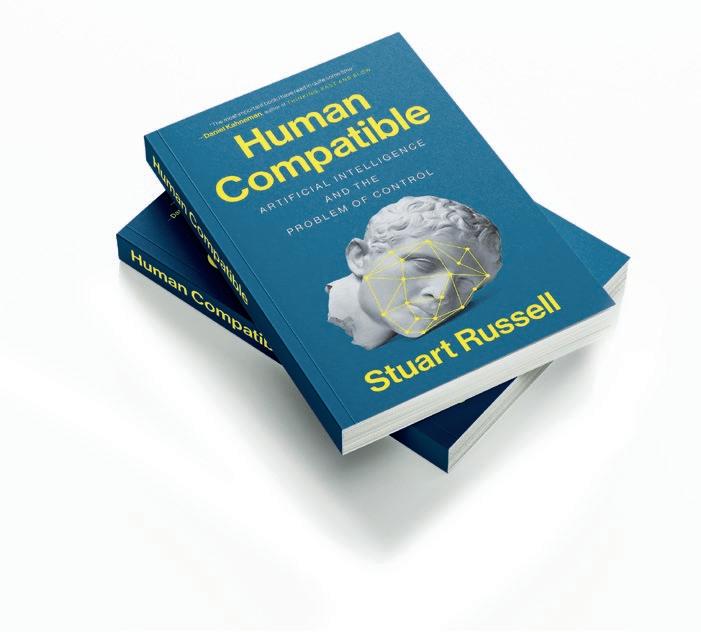
It is a powerful sentiment and uses an urgency not seen since the nuclear disarmament campaign. It is apposite. Take Open AI, for example – the company that released ChatGPT. A body that is as influential as it is chaotic. It has been for profit, not for profit, and both simultaneously (somehow). Four years after it was founded, it was nearly insolvent; Microsoft invested $1 billion and received 49% of equity in a one-off payment, then invested a further 10 billion a year later. Elon Musk was a founding board member before resigning citing a conflict of interest; Tesla is using a rival system in its driverless cars. On 17 November 2023, the Board removed darling of the industry Sam Altman from his position as CEO. The Board also removed Greg Brockman as Chairman. He then resigned as President in protest. Four days later, both returned after negotiations with the Board, after which most of the Board members then resigned. Hardly the safe and secure teamwork that Stuart calls for.
When Stuart was at St Paul’s, there were no computers. His first programme was on a CDC 6600 supercomputer at Imperial College London. With typical Pauline industry, at 13 he wrote off to Imperial requesting access. He wrote a chess programme that was a stack of punched cards two feet high. “It wasn’t very good” he says, “but I knew what I wanted to do”. By the mid 1980s he was a professor at Berkeley. AI was experiencing its first enormous surge thanks to the commercial potential of so called ‘expert systems’.
This is the very best AI has to offer – positive change. It can make work easier, better and faster. It can save millions of lives and profoundly help those in need. This is, of course, if it is correctly harnessed.
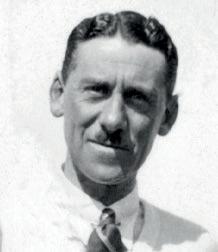

30 ATRIUM SPRING / SUMMER 2024
PAULINE PERSPECTIVE
Top: OP, Valentine Vivian (1900-1905)
Bottom: Lee Sedol, the world Go champion:
The bubble burst when these systems proved to be inadequate and an AI ‘winter’ ensued. His AI course had 25 students in 1990. It has 900 now. The AI community learnt its lesson and became far more mathematical in that fallow period – principally by working on large scale probabilistic reasoning systems (techniques that are designed to handle complex reasoning and decision problems using the principles of probability theory) as well as developing the basic technologies of machine learning, including neural networks. Around 2011, large-scale neural networks – rechristened ‘deep learning’ – started to advance dramatically in speech and visual object recognition and in machine translation (three long-standing hard problems in the field). In 2016, AI had its ‘Hollywood’ moment, when Deepmind’s AlphaGo program defeated Lee Sedol, the world Go champion. The event was much hyped by those for whom it served a purpose but despite that, the tension in the room was tangible. At one point Lee Sedol, so taken aback by the computer’s move, had to excuse himself for 15 minutes for a walk and a cigarette. At several points there were audible gasps in the room from the press pool and from fellow Go champions. People realised what was unfolding in front of them: an event that AI experts predicted would not happen until 2097, if ever.
But does this rapid rate of progress mean that we are about to be overtaken by machines? “In a word”, says Stuart, “No. There are several breakthroughs that have to happen prior to that and scientific breakthroughs are notoriously hard to predict”. He is also at pains to point out his working philosophy is different to that which drives the commercial side of AI development. “They say ‘the more intelligent the better’ but I am convinced this is a mistake; not because of the fear of being superseded but because of the way we have understood intelligence itself”. A fundamental part of intelligence, as the technological world sees it, is the ability to achieve objectives; humans are intelligent because they can behave in such a way as to achieve their objectives. It follows then that a good machine is one that does the

same, saving time or money or brainpower etc. Stuart believes that we should remove the assumption that machines (and with it, AI) should have a definite objective. “Uncertainty about objectives implies that machines will necessarily defer to humans –they will ask permission, they will accept correction and they will allow themselves to be switched off”.
Stuart speaks extremely fondly of his time at St Paul’s and credits a large part of his learning journey with foundations laid at School. “It was a case of reasoning, not rote”. Not long after his first attempts on a computer at Imperial College, St Paul’s received its first micro-computer. He sank his attention into it and his teachers fostered it – he sensed they matched his boyish enthusiasm. It was as novel to them as it was to him. He is consistently surprised and uplifted by new applications of AI, too. A welcome offset to the concern. He cites a recent example at a workshop he was attending about geophysics and the detection of seismic events, with a particular focus on detecting clandestine nuclear explosions. This problem was a perfect match for a new and powerful form of probabilistic reasoning he had recently developed; over a 25-minute coffee break between sessions, the nuclear monitoring problem, widely considered the most important problem is applied seismology, was essentially solved. This is the very best AI has to offer –positive change. It can make work easier, better and faster. It can save millions of lives and profoundly help those in need. This is, of course, if it is correctly harnessed.
How will AI affect the current crop of Paulines and their successors? There has been more than a generation of scorn for teachers who scolded us to learn long division because we will not have a calculator in our pocket when we are older. Little did they know. That has been turbocharged to the point that homework is almost existentially threatened now. What is the point of setting an essay if a bot can write them all? AI could fundamentally change how and indeed if we learn. Stuart is confident therefore that proctored learning and exams will return – an offline style will be celebrated again, in tandem with a hybrid use of all the tools available to help with individual learning.
So, if AI is to thrive within education in future, education must also look to the past. We look again to Bletchley Park, not with Stuart Russell but rather to celebrate another OP, Valentine Vivian (1900-05), present there in 1940 when Colossus was the most advanced computer on the planet. Another extraordinarily talented OP, he was head of the War Station at Bletchley before rising to be head of MI6’s counterintelligence unit, Section V. Vivian, while he was attempting to introduce new blood into the service, selected Kim Philby (Westminster) who later became notorious as ‘The Third Man’ double agent and defected to the Russians, causing considerable harm to the system he had infiltrated. So much of the rhetoric of Artificial Intelligence is focused on the future but there is a very clear lesson from the past; a more real risk is from humans knowingly misusing the information that technology gives us.
31
The CDC 6600 supercomputer (photograph by Jitze Couperus)
Magazine Man
Theo Hobson meets James Hyman (1983-88) who owns more than 150,000 magazines, the world’s largest private collection according to the Guinness Book of Records
What sort of dedication does it take to become such a record-breaker?

As a boy James loved The Dandy and The Beano but was not an avid collector. At School, he moved on to Smash Hits and Empire, but still only held on to a few copies. The habit arose through his first job, at MTV. ‘I worked as a script-writer’, he tells me, ‘giving the presenters things to say about the artists, and before the internet that meant reading all the music magazines. And I caught the collecting bug.’
We meet in his smart but small London office, at which he keeps only a tiny tip of his iceberg, just a few high piles of music and fashion mags. The rest are in a warehouse.
So, it started with music magazines? ‘Yes, and popular culture, so fashion, film, art, design, counter-culture. And then it expanded to things like car magazines, or sports magazines, for the artwork, and the ads.’ Soon he was producing a show on MTV, about dance music, then he produced for other stations. And on the side, he


was scouring Loot magazine for magazine collections for sale. ‘It was an expensive hobby, but I wasn’t into fast cars or drugs, and I was still living at home.’
For some years the collection was kept at a storage unit, and he barely looked at it. In 2012, partly to prove to his wife that he was not a crazy hoarder, he paid it more attention, and publicised it by securing that world record. He started a company, HYMAG, and moved the mags to a warehouse where they were more
32 ATRIUM SPRING / SUMMER 2024
PAULINE PROFILE

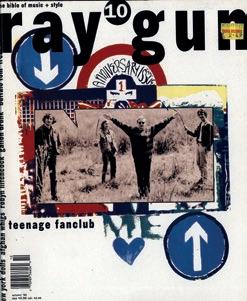
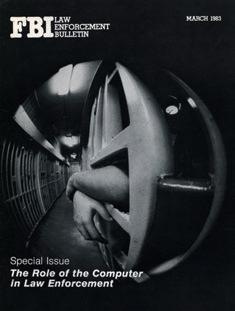




Some titles like Private Eye and the Economist have had their best print sales ever in recent years. Print has been around for thousands of years, we seem to have a deep connection with it.

easily accessible to researchers. ‘It could be someone making a documentary on fashion, or writing about David Bowie, also lawyers wanting to check facts.’ Can’t they use the internet? ‘Not everything is on the internet –there’s a twentieth-century black hole of material before the internet came along. And today even if things are put online, they might to be hard to find, or the link might go dead, you know, Error 404. So physical archives still matter.’
But most of the big physical archives are not easily accessible, he explains, which is why he is busy digitising his collection, and introducing Artificial Intelligence to help researchers. ‘So, let’s say Adidas want to see the history of their coverage in The Face: AI can find the relevant images in a flash. That means I can allow more people to access the collection, in really detailed ways.’
But it is already a viable business, it seems? ‘Yes, it pays its way, even though the storage costs are huge.’ He also works in music licensing, he explains, but this is his passion. ‘It’s sort of overtaken me’.
And the collection continues to grow? ‘Yes, I get offered collections every day, and buy some of them, if it fills a gap, or if it’s a bit rare. And sometimes it’s good to have back-up copies. But I think I’ve probably got enough magazines now.’ He thinks?
Is it still mainly music and fashion titles that he looks out for? ‘Yes, but I’ve been getting more into history, so early magazines like The Illustrated London News are always of interest, anything that documents how things have developed.’
It is interesting that print magazines are still going, now that people use their screens so much. ‘Yes, and some titles like Private Eye and the Economist have had their best print sales ever in recent years. Print has been around for thousands of years, we seem to have a deep connection with it – and the way you flick through pages absorbing information is unique, it’s like a film-reel that you control.’ Does he still subscribe to any magazines himself? ‘The New Yorker – every article has such in-depth research behind it. And Record Collector, for some reason.’
Does he sometimes survey his megastacks of mags, and his warehouse bill, and wonder why he bothers? ‘No, because I see it being used – people want to find this stuff, whether it’s an interview with Robbie Williams or the history of a fashion brand, or an artistic trend, or a period of modern history. It allows people to do a really deep dive into whatever they’re trying to find out about. It’s valuable content, and I want to preserve it, and make it more accessible.’
33
A selection of magazines, courtesy of HYMAG, from James' collection
Leonard Woolf:
The First Modern Pauline?
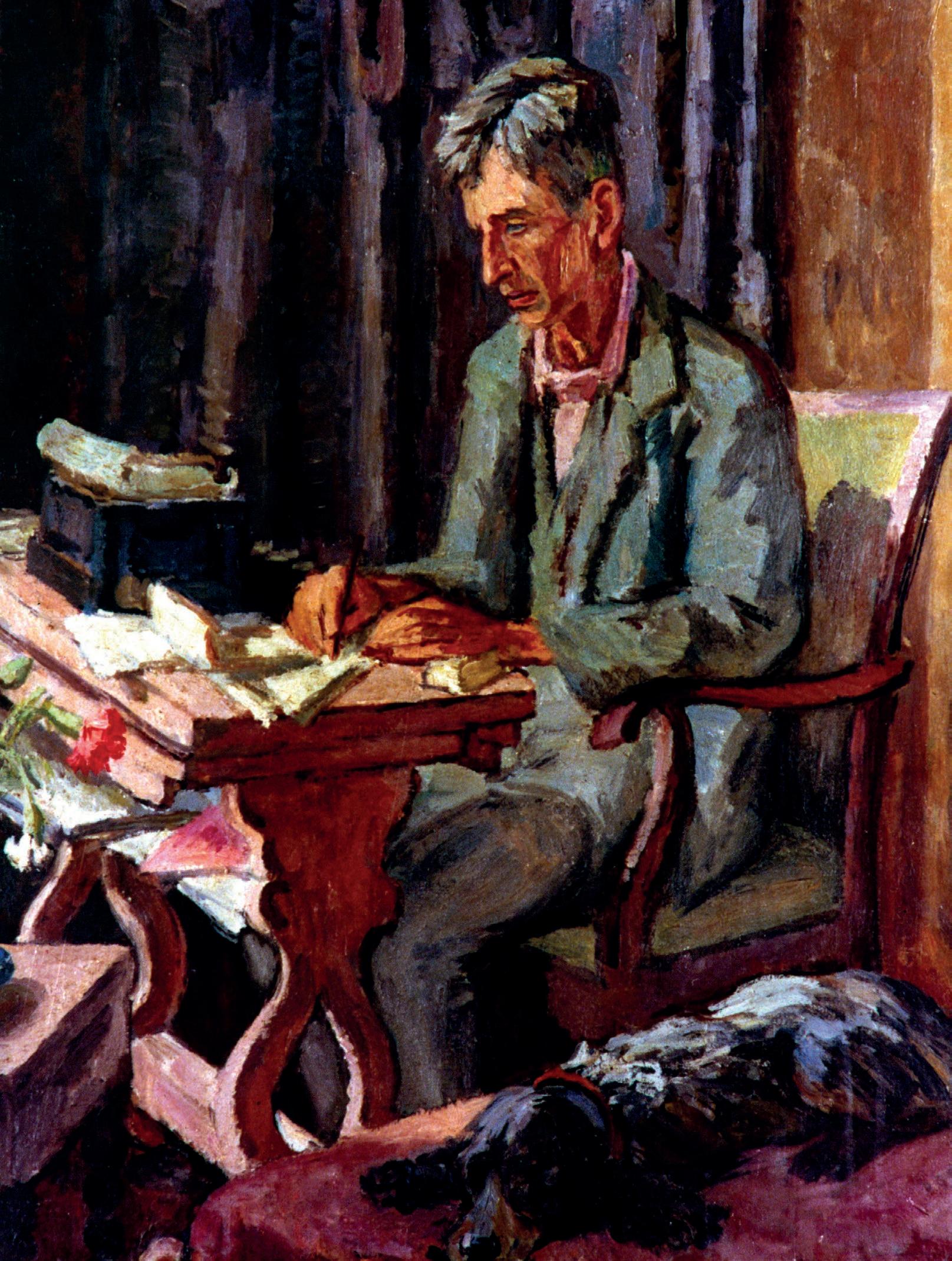
I know, it is quite a claim. But there is something about Leonard Woolf (1894-99), who was at St Paul’s in the last decade of the nineteenth century, that sets the tone for the century to come.
35 PAULINE PROFILE
Theo Hobson (1985-90) unravels Leonard Woolf’s complex school days
He embodied the shift away from public school tradition, towards something more metropolitan and cerebral, and secular (he was a secular Jew). His university friend-group became the nucleus of the Bloomsbury set and of course he married its figurehead, with whom he set up the edgiest publishing house of the day. First, he served as a colonial official in Ceylon (now Sri Lanka), which made him a leading opponent of empire, and left-wing intellectual. He was also a brilliant writer; his multi-volume autobiography is a vivid and often hilarious portrait of the age. It is also a crucial document of Pauline history.
He was born in 1880 to a well-off Jewish family. His grandfather was a tailor who had established a chain of shops, and his father was a barrister. In a textbook illustration of secularisation, the grandfather was strictly observant and ‘rabbinical’ in manner, the father a liberal believer, detached from the ritual traditions, and Woolf himself a non-believer.
It was a happy bustling home in West Kensington, dominated by his brilliant and important father, who encouraged precocious debates round the dinner table. There was time for family bike rides, or in fact tricycle rides, over the river: ‘in those days, after the Castlenau Road, you were practically in the country.’
Then everything changed. When Leonard was eleven his father died, leaving his mother with nine children. The upper-bourgeois lifestyle was suddenly replaced by ‘the menace of extreme poverty’. They had to move to Putney. Fortunately, his oldest brother had already started at St Paul’s and Leonard and two more brothers followed him there, with scholarships.
The intellectual confidence he had imbibed from his father was now mixed with social insecurity. He was a shy, prudish type. When a friend explained sex to him: ‘I had considerable difficulty in concealing from him the fact that it was only with the most heroic effort that I was preventing myself from being sick.’
In 1894 he started at the senior school. ‘There I at once began to develop the carapace, the façade, which, if our sanity is to survive, we must learn to present to the outside and usually hostile world as a protection to the naked, tender, shivering soul.’ On one level Woolf admits that
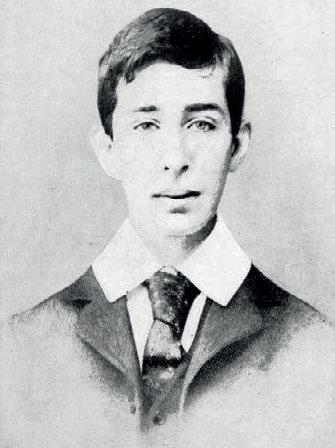
In 1894 he started at the senior school. ‘There I at once began to develop the carapace, the façade, which, if our sanity is to survive, we must learn to present to the outside and usually hostile world as a protection to the naked, tender, shivering soul.”
maybe the mask ate into the face, and he developed a sort of cynicism or flippancy. His deepest characteristic, he says, is ‘a kind of fatalistic and half-amused resignation. I never worry because I am saved by the feeling that in the end nothing matters.’
Partly this was a response to his sense of the proximity of poverty. Unlike almost any other privileged boy, he was vividly aware of what privilege was. Before his father’s death, money was taken for granted. ‘And the social background, the house and servants and brougham and Sunday sirloin, which were based upon this invisible and unmentioned money, were accepted without question as stable and permanent, like the money. This sense of economic and social security was followed suddenly in twenty-four hours by an acute and highly conscious sense of complete economic insecurity.’ Remarkably, his mother led the family with cheerful stoicism, and there was little sense of tragic misfortune. But he was uneasily aware of the possibility of falling through the social cracks, and in those days, there was a very long way to fall: ‘Beneath the surface of society lay a vast reservoir of uncivilised squalor and brutality which no longer exists. It was a class reservoir, and the squalor and brutality welled up, in London at any rate, from those appalling slums inhabited by the ‘lower classes’. He recalls his alarm at witnessing a few episodes ‘when these savage creatures broke out for a moment from their lairs.’
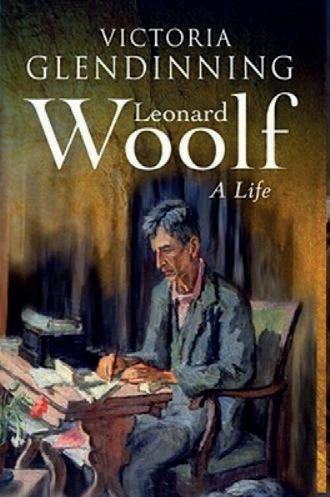
It is hard to say if his need for a shell was partly a response to anti-Semitism, for Woolf plays the issue down, barely acknowledging its existence. Indeed, he seems to find his Judaism a matter of minor curiosity rather than a basic matter of ‘identity’. When he relates the piety of his grandfather and some other relatives, he sounds a bit embarrassed, or as if he is trying to amuse his gentile audience. For example, he tells us of a cousin, Bennie, who embodied ‘that curious phenomenon, the silly Jew who seems deliberately to exaggerate and exploit his silliness.’
His withdrawal from the religious side of Judaism was decisive. ‘When I solemnly announced to my mother that I no longer believed in Jehovah she wept, but her tears were not very convincing, I think, either to me or to her.’ There is a cool disdain for religion here, as if his mother’s
36 ATRIUM SPRING / SUMMER 2024
PAULINE PROFILE
Leonard Woolf as a schoolboy
residual piety must be self-delusion, and such disdain is a recurring feature of his autobiography: he is a major pioneer of the wry, witty secular voice.
He hated school on the whole, I am sorry to report. And if there is any truth in the picture he paints, one sympathises deeply. Imagine a classics department with fascist tendencies. All that mattered was producing the very top classical scholars in the land, outdoing the other public schools. In fact, it is even odder than that, for this objective co-existed with a denigration of intellectual endeavour of any other sort. ‘The public school was the nursery of British philistinism’ – and St Paul’s was as yet no exception. Presiding over this regime was the High Master, FW Walker (18771905), whom Woolf presents a sort of lunatic in charge of his own asylum. ‘One often heard the bellow of the ‘old man’, as of an enraged bull, echoing down the corridors or throughout the hall’.
Woolf had to conform to this ‘classical fanaticism’: though maths was his strongest subject it was only taught half-heartedly and dropped entirely in the final year. His wider intellectual interests had to be hidden – from masters as well as boys: ‘Publicly to have confessed that one enjoyed learning would have been as impossible as for a respectable Victorian lady publicly to confess unchastity and that she had enjoyed it.’ Luckily one teacher encouraged him on the sly, suggesting things he should read. He also happened to be quite good at sport, which helped him to hide his shameful swottish tendencies.
There was one other escape from philistinism. Six years earlier, GK Chesterton (1887-92) had set up a debating society that met at boys’ homes. It was mostly for Old Paulines – Woolf was one of just three current Paulines invited, along with Chesterton’s younger brother. ‘It is amusing, in view of the subsequent violent anti-Semitism of the Chestertons, to note that three out of the four boys still at school whom they elected to his very exclusive society were Jews.’
It is strange, to our ears, that there was not more of a counter-culture, for surely plenty of boys came from fairly progressive homes. The dominant ethos of games, classics, muscular Christianity and militarism must have been

forbiddingly strong, and a satirical take on it almost unthinkable. But there were in his year ‘a couple of rebels, whom I will call A and Z, who would have been communists a decade or two later. They were virulent intellectuals contra mundum. They despised everything and everyone at St Paul’s, but they had a genuine intellectual curiosity and love of literature. When they found that I had the same, though they despised me for playing cricket and fives and for being friendly with all sorts and kinds of boys, they welcomed me as a conversationalist… I never saw them again after I had left school. A became, I believe, a clergyman, and Z committed suicide while still at university. The Church or suicide, it will be observed, were to us in the 1890s what the Communist party became to a later generation.’
What would Woolf think of the School today? He would surely approve of the dethroning of classics but might question whether maths should take its place. He would be glad to see lots of diverse opinions and relatively diverse family backgrounds. He would be glad that cricket and fives are still played. What would he think of its single-sex status? And indeed, of its continued existence, and the fact that the Labour Party is still wondering how tough to be on this expression of economic disparity? One imagines a smile of ‘half-amused resignation’.
“I never saw them again after I had left school. A became, I believe, a clergyman, and Z committed suicide while still at the university. The Church or suicide, it will be observed, were to us in the 1890s what the Communist party became to a later generation.”

37
Leonard Woolf and his wife Virginia Woolf in 1912
Who Cares?
Three OPs share their thoughts on
London’s social
care needs
Every reader of this magazine will at some point become a user of care services and many will have first-hand experience of navigating care for ageing parents or children who have special educational needs. Also, of course, the quality of these services defines who we are as a society. In an election year, expect many debates about policies, approaches and resources.
Atrium brought together three Old Paulines who work on social policy and social care in London. Jeremy Skinner runs the City Intelligence unit for the Greater London Authority; Barnabas Palfrey works on NHS GP surgery-based ‘social prescribing’; and Harry Hobson is Director of the social innovation organisation Neighbourly Lab.
Jeremy Skinner (1984-89)
When I joined the School in 1984, London was not the global metropolis it once was and has since become again. In the mid-80s, its golden days were long past. Images of the ‘Winter of Discontent’ and early 1980s recession were strongly imprinted on my 13-year-old brain: local parks converted into temporary refuse dumps, periodic blackouts, lengthy dole queues, worries about crime and an unkempt public realm. And St Paul’s then was a competitive, quite cynical, place to learn – the miraculous Christian Union was one of the counterweights that drew me to public service.

bobbling near nine million inhabitants since Covid. As a city where I had grown up, and largely spent my working life since university, its renaissance was already a remarkable phenomenon when I toured its boroughs and health services working for the Audit Commission in my 20s. I then spent a few years at Her Majesty’s Treasury in the Gordon Brown era before joining the Greater London Authority in the mid noughties after replying to a job advert in The Guardian with a suitably ambiguous job title that appealed to my curiosity and breadth of interests (lack of expertise, some might say).
Then, the capital was in a trough –literally in terms of its population, which was lower in 1986 than it was in 1910. Today, London is reaching new peaks,
Overseeing our extraordinary city is the Mayor of London – I joined when Ken Livingstone was mayor, have worked under Boris Johnson and now serve Sadiq Khan’s administration. I’ve been lucky in having had a variety of roles, from campaigning successfully for the Elizabeth Line to helping the city recover from Covid, working in economic development, infrastructure, strategy and more recently overseeing our ‘city intelligence’, a team that brings together insights from many disciplines – economics, social research, data science, opinion research and demography – and shares them through various tools, reports and data visualisations for colleagues and the public.
London offers so many opportunities and its creative streak is second to none: yet many Londoners suffer, especially because too few homes have been built to keep up with its success (inducing high levels of anxiety and misery) and from an array of health, social and environmental problems, which Barnabas encounters daily. City government, at its best, opens itself up to the stories, data and analyses that reveal such challenges and opportunities, and then works with inspiring groups – including organisations like Harry’s – to tackle and exploit them, sometimes years, even decades at a time, hopefully to make it a better place for everyone –dwellers, visitors, children, students, workers and pensioners alike.
Mayoral authorities like the GLA are intrinsically fascinating places to work and tend to join up the dots in a way that central government struggles to, siloed as it is, department by Whitehall department. Not everyone agrees with everything every mayor does, obviously, but without the institution, I doubt we would have had the Olympics, the Elizabeth Line, or the Living Wage – and a revived global metropolis on our doorstep – to name but a few things that city government can achieve.
38 ATRIUM SPRING / SUMMER 2024 PAULINE PERSPECTIVE
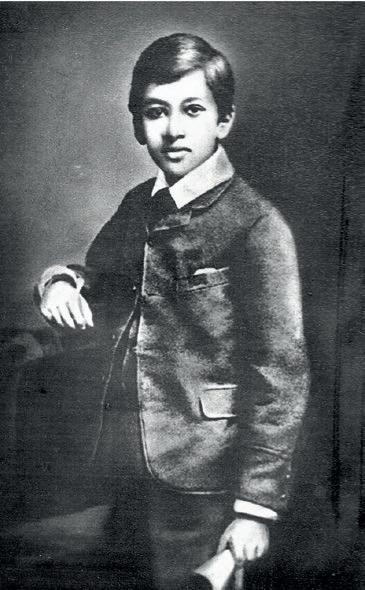
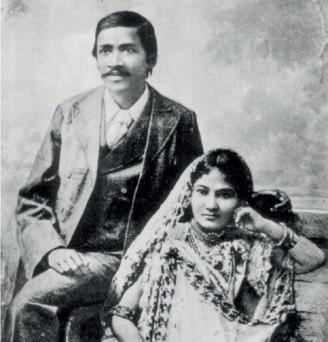

a family friend in the Indian Civil Service, Henry Cotton, arranged for the boys to move to rooms at the Liberal Club in South Kensington.
Their years at the School coincided with the start of the School’s golden age in the aftermath of the move to Waterhouse’s famous building in West Kensington. The High Master of the period was the great Frederick William Walker whose ferocious portrait would intimidate boys sent to see his successors for many decades afterwards. It was under Walker (appointed 1877) that the School first admitted non-Christians – hence the arrival of the Ghose boys – and that St Paul’s first became a national academic powerhouse, leading the country in Oxbridge scholarships. Among the brilliant contemporaries of Aurobindo and his brother Manmohan (1884-87) were GK Chesterton (1887-92), Lawrence Binyon (1881-88) and EC Bentley (1887-94) and also Sidney Bunting (1884-92), who would the founding leader of South African communism.
The Ghoses were not the only South Asians at the School during this period. St Paul’s educated several other Indian boys who achieved fame between the late 19th century and independence. Among them were India’s only World War 1 flying ace, Indra Lal Roy (1911-17) (killed in France in 1918), and his brother Paresh Lal Roy (1908-12), the father of Indian boxing (school champion, Cambridge Blue). Most Indian Paulines of the era, like the Roys and the Ghoses, came from Bengal, reflecting the intellectual prowess and Anglicisation of Calcutta society.
Aurobindo was an academic star from the start, winning various school prizes before gaining a classics scholarship to King’s College Cambridge. According to biographical accounts published in India, High Master Walker personally taught him Greek as a new boy, after seeing his brilliance in Latin, and later recalled of Aurobindo that he was the most gifted pupil he had ever taught.
Dr Ghose’s dream for his sons to join the Indian Civil Service was never fulfilled, although Aurobindo passed the entrance exams for the ICS (coming 11th out of all who took the tests) before going up to Cambridge, and while there excelled in all the courses required of an ICS probationer, among them law, Indian history and Sanskrit.

1. Sri Aurobindo at St Paul’s, 1884
2. Sri and his wife, Mirinalini Devi, 1901
3. Remand photo, 1908
4. Aurobindo c. 1900
Even at School, Aurobindo had begun to disapprove of British rule of the subcontinent. His disillusionment with the existing regime in India was deepened by discussions at the Cambridge Majlis, a debating society for Indian students. AA Ghose as he was then called, also found his fellow ICS probationers unimaginative and unimpressive. He dropped out of the programme by failing to retake the ICS compulsory horsemanship test and left the university without graduating, despite having taken a First in part one of the Classics triposes.
In 1893 Aurobindo returned to India where he worked for the Maharaja of the princely state of Baroda (in what is now Gujarat state) as his private secretary and then a professor at the state’s college. It was at Baroda that Aurobindo first learned to speak Bengali and other major Indian languages, and finally discovered the classics of Indian literature and thought. Like Nehru and Gandhi, he was conscious of his own deracination, and had to work hard to become as Indian as the people he was to lead in the nationalist movement.
It was also during his 13 years in Baroda that Aurobindo and his youngest brother Barindra became intensely radicalised, partly in response to the 1905 partition of Bengal by Lord Curzon, the then Viceroy. Aurobindo even arranged for his brother and other young radicals to receive military training in the Maharaja’s army.
In 1906 Aurobindo moved to Calcutta where he and Barindra became the key figures in the Jugantar movement of young anti-Raj activists, writing for the radical Bande Mataram English language daily, and planning acts of revolution. Many of his disciples lived together in a large house owned by Aurobindo’s family and foreswore all social involvements outside the movement. His brand of activism fused India’s ascetic sanyasi tradition with a European political radicalism that was philosophically influenced by both German romanticism and Darwinism, and which was politically inspired by Irish Fenianism. It embraced violence as a liberating, even ecstatic experience, and also a vital part of evolution. In Aurobindo’s words, “War is the law of creation”.
Aurobindo’s movement was a precursor of the violent
42 ATRIUM SPRING / SUMMER 2024
SURPRISING PAULINE
1 2 4 3
The Feast Service
Bob Phillips (1964-68) delights in the return of an Evensong to be treasured
We celebrated Evensong at St Paul’s Cathedral on Monday 5 February –the annual service was followed by a celebration at Mercers’ Hall. Traditionally, this service is held close to the Feast of the Conversion of St Paul, one of the most important events in the early Christian Church.
The collects and readings that were integral to the service seemed to be so appropriate for the occasion: thoughts on leadership from Exodus; Moses being asked to lead his people; and a meditation from James on enduring temptation and on generous acts of giving.
Everything was bathed in the most exquisite music, in a space in which every note is enhanced. A large choir, from both senior schools and the junior school sang from the Cathedral choir stalls and made one shiver with pride at the perfection of chant and hymn and anthem. The day must have been an inspirational experience for Alexander Knight and Sophia Membury, organ students at the schools, playing the great organ in this magnificent cathedral. They gave us Bach and Franck and Boulanger and Stanford and more, before the service, accompanying the choir, and finally an electrifying voluntary to send us on our way out into the City. The musical experience was not so accommodating for the congregation: two out of the three hymns were a bit obscure in both music and words. Give us something to join in with!
There was a huge congregation –St Paul’s Cathedral looked exultant to be so full of worshippers. The magnificent interior of the Cathedral was filled as it is meant to be. Over 400 guests of St Paul’s schools forming a deep circle under the dome, and maybe another 300 in the nave.
The experience of standing under the edge of the dome, looking up into heaven, with the heavenly choir

beaming their joyful music out into the space was quite breathtaking. Just as a theatrical experience it was very moving, but much more so with the depth of faith and the connection to the very centre of London, back through so many centuries. The service honoured our John Colet “priest, scholar and sometime Dean of St Paul’s”.
It was wonderful to have our service back, in all its magnificence and specific relevance to our schools, whether it was as simple Evensong or linked to the Feast of the Conversion. It was a welcome change from recent years. The Bishop of Kensington, in her sermon, talked about “knowing who you are”, and she hit the nail on the head – this is who we Paulines are, part of the heart of London.
The Feast Reception
There were 140 Old Paulines, Paulinas, staff members and guests at a reception and supper at Mercers’ Hall following Evensong.
Peter Lane (Master Mercer) introduced the evening and brief
speeches were given by Jeremy Withers Green (1975-80) (OPC President), Sally-Anne Huang (High Master) and Hilary Cummings (St Paul’s School Librarian). Inclusivity was the theme through the speeches with the strengths of the Pauline and Paulina communities highlighted. The High Master announced the exciting news that a Memorandum of Understanding had been signed between St Paul’s and St Paul’s Girls’ School, covering ways in which the two schools will work more closely together.

45
OLD PAULINE CLUB NEWS
Evensong at St Paul’s Cathedral
The Feast book donation
Hilary Cummings, St Paul’s Librarian describes the restoration of Purchas, his Pilgrimes
This year the Old Pauline Club agreed to fund the repair and conservation of one of our very special early books: Purchas, his Pilgrimes by Samuel Purchas, Volume IV, published 1626.
Samuel Purchas was a compiler of travel writings, a Church of England clergyman, a member of the Virginia Company and a fellow of King James’s College at Chelsea. As Vicar of a church near Leigh-on-Sea, he met many sailors and collected their stories of travel in Europe, Asia, Africa and the Americas. Purchas gathered anecdotes and travel writing for over 20 years before publishing them in the first edition of Pilgrimes in 1613. At the time it was the largest book ever produced by an English press.
Volume IV deals with Asia and is notable for the passage which inspired Coleridge to write Kubla Khan. A note to Coleridge’s poem explains, “In the summer of the year 1797, the Author, then in ill health, had retired to a lonely farmhouse between Porlock and Linton, on the Exmoor confines of Somerset and Devonshire. In consequence of a slight indisposition, an anodyne had been prescribed, from the effects of which he fell asleep in his chair at the moment that he was reading the following sentence, or words of the same substance, in Purchas’s Pilgrimage: “Here the Khan Kubla commanded a palace to be built, and a stately garden thereunto. And thus, ten miles of fertile ground were inclosed with a wall.”
The Library’s copy is a fourth edition, published in the year Purchas died. Sadly, over the years it has lost its frontispiece, and the covers have fallen off. The text however is in surprisingly good condition, and it still has its lovely map of China. We would love to show the book, but its current condition makes this very difficult.
We are very grateful to the OPC for funding the restoration of this lovely book and allowing it to be used in the future.
New OPC Sports Committee
A new OPC Sports Committee, incorporating the previous Grounds Committee, has been formed, chaired by James Grant (1990-95).
The Committee will report into the OPC Executive Committee and, as well as developing existing OP sports and launching new clubs, will act as liaison between the Club and Colets as it looks to undergo exciting development. Members of the committee are:
– Ross Compton (1958-63): Grounds representative
– James Grant (1990-95): OP Golf Society and Cycling
– Jehan Sherjan (1989-94): OPAFC
– Rob Rayner (1999-2004): OPFC
– Nick Troen (1998-2003): Racquet Sports and Other Sports
– Ian Turley: Chief Executive of Colets
– Jack Turner (2008-13): OPCC
If you organise a formal or informal sporting group of Old Paulines, contact James via jsg@stpaulsschool.org.uk
OPC Wessex Branch seeks a new Chairman
Stephen Baldock (1958-63), who took over from Patrick Burke (1944-46) as Chairman of the Wessex Branch of the Club in 2008, has announced his intention to stand down at the end of 2024.
Any Old Pauline or Paulina who is willing to consider succeeding him is invited to contact the OPC on community@stpaulsschool.org.uk. We interpret ‘Wessex’ flexibly and in practice any Old Pauline or Paulina is welcome as a member.
The chair is a figurehead whose role is mainly to invite a guest speaker and to preside at the annual lunch, which in recent years has been held in Salisbury. Martin Seccombe (1961-64) will continue for the time being as Branch Secretary, dealing with communications and social arrangements.
Veterans’ Network
We are setting up a networking group for those who attended St Paul’s and went on to serve in the Armed Forces.
Veterans will be invited to the School’s Remembrance Service and we will look to organise events for the group in the future, possibly including activities around Armed Forces Day. If you are a veteran, even if you served for a short time or in the Armed Forces Reserve, please email community@stpaulsschool.org.uk
46 ATRIUM SPRING / SUMMER 2024
OLD PAULINE CLUB NEWS
OPC Events
OP cycling enthusiasts return for Pauline Continuum Cycle
On Sunday 5 November the Pauline Continuum cycle ride was held.
Cyclists of all levels including pupils, parents, staff and Old Paulines enjoyed a rare day of good weather as they departed from St Paul’s to Windsor, with most returning back to London.
Three groups of differing speeds and experience were expertly led by members of the School’s teaching staff and, apart from a few punctures, there were few incidents along the way, with the support vehicle only deployed once.
We hope to build on this event to create a community which will enjoy regular rides, building towards a longer ride in future with fundraising in aid of the School’s bursary appeal. If you are interested in receiving updates on future cycling events, please email community@stpaulsschool.org.uk
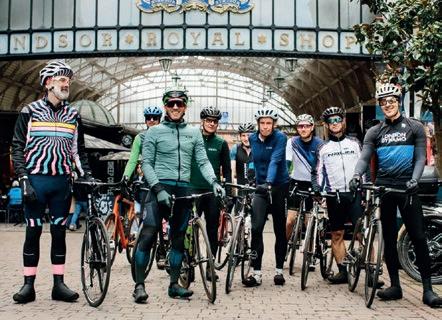
LGBTQ+ Network
We were delighted to hold the first ever meeting for this important network in December.
Old Paulines and former teachers took part, sharing their own experiences while learning about the School’s current Diversity, Equality and Inclusion activities from St Paul’s Head of DEI, Tyler John. If you would like to join this growing group, please email community@stpaulsschool.org.uk

OPC’S 2023 Annual Dinner
Old Paulines of all ages came together on 12 October for the OPC Annual Dinner at the School.
Guests enjoyed speeches from the High Master, who gave an update on developments at the School, and Jon Blair CBE (1967-69), who entertained us all with stories from his Spitting Image days.

High Master’s visit to USA
The High Master had a successful trip to the East Coast of the USA in October 2023. This included visits to universities to meet with young Old Paulines studying there, as well as a lunch at the Harvard Club in New York for OPs of all generations.
A reception for alumni and others from the St Paul’s community was then held at the University Club in Boston during the Head Of The Charles regatta. Those present were able to celebrate a stunning victory in the youth’s race by the St Paul’s crew, coached by Bobby Thatcher.
Rowers gather at Watermen’s Hall
We were delighted to see OP rowers from 1st VIIIs in the 1950s onwards at the Watermen’s Hall in late November, including members of the 2022 School crew which won the Princess Elizabeth Challenge Cup at Henley.
Guests heard from the High Master and Harry Hampson (1978-83) about the latest developments in rowing at St Paul’s and the fundraising appeal to refurbish the School’s Boathouse.

Old Paulines lay wreathes at the School’s Act of Remembrance
The Old Pauline Club was represented at the School’s annual Act of Remembrance Service on 10 November.
Lt. Col. (Retd.) Lincoln Jopp MC (1981-86) and Geoffrey Matthews (1972-77) represented Old Paulines at the Service. As always, Laurence Binyon’s (1883-88) poem For the Fallen was central to the ceremony: we will remember them.
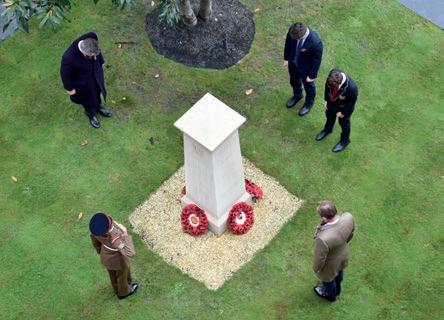
47
The Start It programme
As part of a drive to develop practical creative and entrepreneurial skills, St Paul’s teacher and OP Nick Troen (1998-2003) and St Paul’s School have been working together to develop Start It, an educational programme that teaches sustainable entrepreneurship and innovation skills to school-aged students.
The programme consists of teaching, mentoring and interactive workshops and is tailored for young people to allow them to become the next generation of entrepreneurs and innovators who are also conscious of the importance of both social and environmental sustainability.
An important focus of Start It is to foster collaboration between different groups of young people (over 2,000 students from West London Partnership, or WLP, schools have participated over the last few years) and to address social and environmental issues through enterprising behaviour. In addition to learning key principles of business, finance and enterprise, students also practise a variety of soft skills, including leadership, management, presentation, brainstorming, seeking initiative and discipline.
The culmination of Start It is the ESTER incubator programme which launched last year at Saul Klein’s (1984-88) Local Globe offices. Named after the 20th century Danish economist Ester Boserup, who believed firmly in the power of human innovation to overcome the world’s challenges, the ESTER incubator seeks to develop founders with a similar vision to take their business idea from pre-seed concept to market over a 12-month period. During this time ESTER participants – who again can come from any of the WLP member schools – will receive mentorship, technical support and deep sector expertise as well as legal, accounting and other technical resources. The opportunity to leverage the network of Start It is another major benefit of the programme. This year’s successful applicants, who underwent rigorous interviews and assessments from members of the OP community, include Ansh Tandon (2020-22), Huw Siddle (2008-13), and Kayyan Elmasry (2017-22), with each receiving funding and support as they aim to turn their business ideas into successful enterprises over the coming months.

Old Pauline Club
St Paul’s Alumni Association
Spring 2024
President J Withers Green
Past Presidents
C D L Hogbin, C J W Madge, F W Neate, Sir Alexander
Graham GBE DCL, R C Cunis, Professor the Rt Hon the Lord McColl of Dulwich, The Rt Hon the Lord Baker of Dorking CH, J M Dennis, J H M East, Sir Nigel Thompson KCMG CBE, R J Smith, B M Jones, The Rt Hon the Lord Vaizey of Didcot
Vice Presidents
Professor D S H Abulafia CBE, T M Adeyoola, Rt Revd R W B Atkinson OBE, Professor M D Bailey, P R A Baker, R S Baldock, S C H Bishop, J R Blair CBE, N St J Brooks, R D Burton, W M A Carroll, Professor P A Cartledge, M A Colato, R K Compton, T J D Cunis, A C Day, S J Dennis MBE, Sir Lloyd Dorfman CVO, CBE, C G Duckworth, A R Duncan, J A H Ellis, R A Engel, D H P Etherton, The Rt Hon the Lord Etherton of Marylebone PC, Sir Brian Fall GCVO KCMG, N J Fitch, Sir Simon Fraser CMG, KCMG, GCMG, B R Girvan, The Rt Hon the Lord Godson of Thorney Island, T J R Goode, D J Gordon-Smith, Lt Gen Sir Peter Graham KCB CBE, The Rt Hon the Lord Greenhalgh of Fulham, Professor F D M Haldane, H A Hampson, S R Harding, R J G Holman, J A Howard, S A Hyman, S D Kerrigan, P J King, T G Knight, J W S Lyons, I C MacDougall, G C Matthews, Professor C P Mayer CBE, R G McIntosh, A R M McLean CLH, J D Morgan, A K Nigam, N H Norgren, The Rt Hon George Osborne, Sir Mene Pangalos FRS, T B Peters, D M Porteus, R M Rayner, The Rt Hon the Lord Razzall of Mortlake CBE, The Rt Hon the Lord Renwick of Clifton KCMG, B M Roberts, J M Robertson, J E Rolfe, Professor S J Russell OBE , M K Seigel, J Sherjan, J C F Simpson CBE, D R Snow MBE, S Strauss, A G Summers, R Summers, R Ticciati OBE, The Rt Hon Tom Tugendhat MBE, VR, Sir Mark Walport FRS, Professor the Lord Winston of Hammersmith
Executive Committee
Jeremy Withers Green (President & Chairman of the Committee), Ed Vaizey (Immediate Past President), Sam Turner (Secretary), Nick Brooks (Treasurer), Kut Akdogan (30s Decade), James Grant (Sports and AROPS), Simon Hardy (Co-Opted, Strategy), Sam Hyman (Co-Opted, Surveyor), Brian Jones (Co-Opted, Nominations), Dave Methuen (40s Decade), Elizabeth Monro-Davies (Parent), Nog Norgren (50s Decade), Ali Palmer (Governor), Rishi Patel-Warr (20s Decade), Jehan Sherjan (Thames Ditton), Ellie Sleeman (SPS Development), Simon Strauss (Overseas), Nick Troen (SPS Staff), Neil Wates (Communication & Engagement)
Nominations Committee
Jeremy Withers Green (Chairman), John Dennis, Brian Jones, Peter King
Strategy Implementation Committee
Brian Jones (Chairman), Nick Brooks, Michael Colato, Simon Hardy
Sports Committee
James Grant (Chairman), Ross Compton, Rob Rayner, Jehan Sherjan, Nick Troen, Ian Turley, Jack Turner
Advisory Council
John East (Chairman)
David Abulafia, Richard Atkinson, Peter Baker, Simon Bishop, Jon Blair, Paul Cartledge, Mike Colato, Ross Compton, Richard Cunis, Tim Cunis, Alan Day, John Dennis, John Ellis, Robert Engel, Brian Fall, Dean Godson, Mike Graham, Stephen Greenhalgh, Harry Hampson, Richard Holman, Peter King, Charles Madge, Alan McLean, Jon Morgan, Francis Neate, Rob Rayner, Tim Razzall, James Rolfe, Mike Seigel, Nigel Thompson
Archivist
Kelly Strickland
Accountants
Kreston Reeves LLP
Trustee
OPC Trustee Company Limited
49
CRICKET
After a difficult 2023 season and relegation to Surrey Championship Division 5, OPCC’s 1st and 2nd XIs are determined to bounce back with a successful 2024 after returning to St Paul’s for indoor nets for the first time since 2019. The 1st XI will be under ‘new’ leadership again, with Chris Berkett (2005-10) reprising the captaincy after his very successful spell from 2016-22. Our thanks go to his wife Hannah. Yas Rana (2009-14) takes over as 2nd XI captain and the club thanks Jack Turner (2008-13) for his sterling work over the last few seasons. Oscar Jefferson (2010-15) has moved to Hong Kong. Olly Stoddart therefore takes over as 3rd XI captain and is determined to go one better than last year’s third position.
Several university-aged Old Paulines made their debuts for the club in 2023 and we have high hopes to recruit more thanks to improved relationships with the master in charge of cricket at St Paul’s. However, age is no barrier to entry for us, with the 3rd XI a nice blend of greenhorns and veterans. The same applies to our excellent Sunday side, run by Charlie Malston (1995-2000).
We are always looking for new players – and, for that matter, umpires and scorers – so if you would like to find out more, come and watch us play at the wonderful Colets facilities or email Chris at berkettc@gmail.com
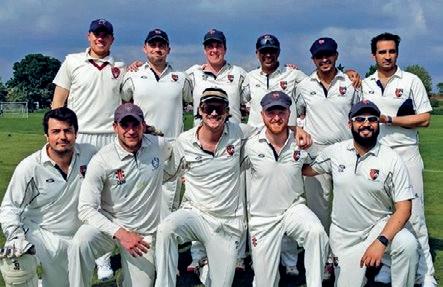
FIVES

SQUASH
With there being no courts at the School (we still look forward to learning about SPS plans to build back better), OP squash has managed to secure courts at the Queen’s Club for its fixtures. This is thanks in no small measure to the wonderful work of Yawar Islam, the Head Pro at Queen’s and also the OP squash team trainer. He has produced an exciting flow of fresh squash talent during the last decade; so, many of the best OPs are also Queen’s members.
As these school leavers are now OPs, the average age of the OP squash playing contingent has come down sharply. Both gap year and university students joined the fray for our two regular fixtures against the Jesters and also the Londonderry Cup tournament which this year pitted us against the Old Etonians.
The Jesters match is always a popular fixture, with a wide range of playing standards, followed by a relaxed and friendly dinner afterwards. The more serious Londonderry match had some closely fought battles, but unfortunately the OPs came out on the losing side. However, with such a young cohort of players now available, the future of OP squash looks brighter.
Rugby Fives 2014 Captain, Ben Beltrami (200914), won the National Open Championship for the first time. He had to defeat seven-time National Champion and 2007 Fives Captain Dan Tristao (2002-07) in the semi final, as well as Ed Kay (2005-10) in the final. Ben is the third OP winner of the national championship, alongside Dan, who won in 2013 and 2016-22, and John East (1960-65), who won in 1969.
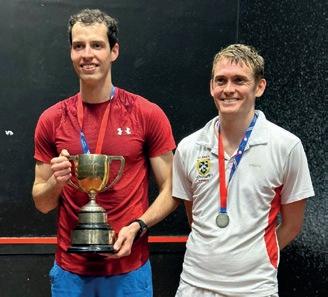
OPC MERCHANDISE
Did you know that Old Paulines probably drank more than 100,000 cups of coffee last week?
Time for an upgrade?
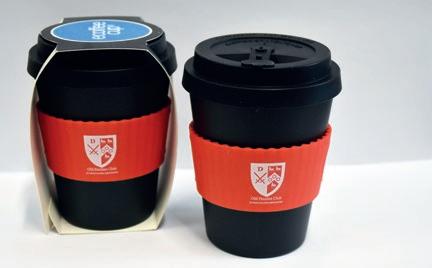

Or maybe you need some smart new stationery?
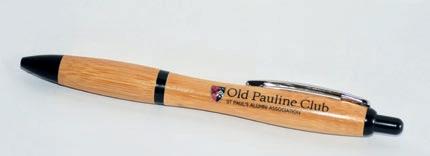

Branded with the Old Pauline Club –St Paul’s Alumni Association crest, these items are the latest additions to the OPC merchandise range, but all the old favourites are still available. Whether you are after an OPC beaded belt, woven silk tie or bow tie, cufflinks, a blazer or a scarf, it is stocked on our online store.
Check out all that is on offer by visiting the Old Pauline Club website.
51
£10
£2.50 £20 £20
OBITUARIES

In Memoriam
Christopher M Ashford (1969-71)
William R Avens (1950-55)
John R Barclay (1954-59)
Richard A Barker (Former Head of Computing, Teacher of Mathematics, 1988-2018)
David A Basham (1954-58)
Malvyn A Benjamin (1951-54)
Krishan N Bhaskar (1959-63)
Robin M Boddington (1948-52)
Martin J Bradley (1945-47)
Colin R Dring (1959-64)
William Robert Dunham (1953-58)
Finlay J Fountain (1953-56)
Peter G Galea (1953-58)
Nicholas J Hayman (1971-75)
Michael J Jenkins (1947-52)
Thomas J Knott (1945-50)
Maurice Lambert (1941-45)
David M Loewe (1946-52)
Edward S Max (1977-82)
Richard B Morris (1967-70)
Gerhard (George) G Newton (1943-48)
Kenneth A Pocock (1949-55)
Christopher S Powell (1960-64)
Norma Rivers-Bland (Former School Administrator, 1974-95)
Geoffrey J Samuel (1944-49)
Godfrey Peter Scott (1958-62)
David J Sherwin (1951-55)
Thomas B Skilbeck (1964-69)
Simon W Smijth-Windham (1951-55)
John N Suggit (1935-41)
John L Thorn (1939-43)
George Grainger Weston (1938-39)
Hugh J H Williams (1961-64)
Michael (Mike) J B Wilkins (1962-65)
David K Anslow (1954-59)
After attending Colet Court preparatory school, David studied at St Paul’s School between 1954 and 1959. He loved his days at St Paul’s and would often reminisce about his time there. At St Paul’s, David was Captain of Boxing. He remained in touch with several of his teachers from his time at St Paul’s, in particular WW Cruickshank who had taught him Latin. David also stayed in regular contact with various Old Pauline contemporaries, many of whom attended David’s memorial service held in Cobham, Surrey, close to the River Mole where David spent many a happy afternoon fishing.
Following his time at St Paul’s, David went up to Jesus College, Cambridge to read Economics. After gaining his degree, he went on to pursue a career in business and corporate finance at Lazard, Lloyds Bank Investment Banking Group and Brown Shipley, having qualified as an accountant at Price Waterhouse. He subsequently held various non-executive directorships and was chairman of several listed companies. He married in 1980 and had a son, Alexander, and a daughter, Louisa. David Keith Anslow died on 30 March 2023, aged 81. Alexander Anslow, son
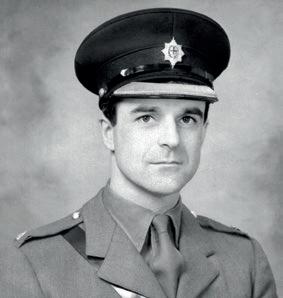
William R Avens (1950-55)
Lt. Col. William Richard Avens was born in Southsea, Hampshire in 1936. He spent five years at St Paul’s as a boarder at High House, Brook Green, under the guidance of Housemaster Alec Harbord and High Masters RL James and Antony Gilkes. Richard adored his time at St Paul’s. Among many achievements, he became Captain of the 2nd VIII Rowing team, Captain of High House, and a School Prefect. He also joined the Army Cadet Force, which led to his future career. In 1956, he joined RMA Sandhurst and received a commission in the Coldstream Guards in 1958.
Richard gained extensive operational experience with the Coldstream, including a three-year tour in Kenya, the fight for Jebel Akhdar in Oman in 1958 and operations in Bahrain, Kuwait and Zanzibar. He was the Adjutant of the 2nd Battalion and The Subaltern for the Escort during the 1962 Queen’s Birthday Parade. An appointment in the British Army of the Rhine (BAOR) was followed by a position as a company instructor at Sandhurst. He loved teaching and encouraging the young.
As a Major, he commanded companies in the 1st and 2nd Battalions, which included deployments to Greece, Denmark, Norway, and Northern Ireland. He served as Second-in-Command of the 1st Battalion in Berlin and Regimental Adjutant in London. Later, he attended the National Defence College and became the Commanding Officer of the 2nd Battalion, Royal Brunei Malay Regiment. Richard was a very popular and effective Commanding Officer. After completing his command, he returned to the London District as a Grade 1 staff officer and then retired from the army in 1983. For the next 18 years, he worked in London at the Worshipful Company of Grocers and then at a London law firm as a partnership secretary.
Richard was married for 51 years to Sarah and had three children, Alexandra, Charles and Edward, and three grandchildren. Richard’s son Charles attended St Paul’s from 1992 to 1997. Richard was loved and adored by his family and many friends and was the very epitome of an officer and a gentleman. Sarah Avens, widow
52 ATRIUM SPRING / SUMMER 2024

Martin J Bradley (1945-47)
Martin Bradley was an intrepid and multilingual artist known as the ‘Rimbaud of Soho’ whose strange career included work on a cargo ship and desertion from the Spanish Foreign Legion.
Born in Hammersmith in 1931, Bradley’s unmarried parents (a Flemish mother and army captain father) gave him up for adoption, and he ended up in an orphanage.
Against the wishes of an anonymous benefactor who had paid his school fees, at the age of 14 Bradley joined a cargo ship as a cabin boy. The destination was South America.
Drawing his fellow seamen during the long Atlantic crossings meant that by 1949, he was selling portraits to the men he found in Seamen’s Missions after returning to London. At 19, he became an abstract painter, enjoying the carousing camaraderie of Soho’s artistic scene.
Despite a solo exhibition and interest from London dealers, Bradley, a fluent French speaker, chose to live in Paris. It was here that the influential proprietor of the Galerie Rive Gauche introduced his work to an international audience. However, Bradley fell into a state of advanced alcoholism; a fellow artist forced him to return to a sanatorium in England. Bradley believed this intervention saved his life.
In 1961, Bradley joined the Spanish Foreign Legion, became the company tattooist and briefly saw action in the Sahara. Deserting after less than two years, he travelled extensively in Asia where he became fluent in Chinese, Japanese, Tibetan and Hindi.
Around this time, Bradley wrote: “I want to share with you, the spectators, the marvellous moments that allow us to reflect on the Eternity of the Cosmos. I consider myself rather a ‘visual poet’ than a painter and it is thus that I express myself.”
In 1951, Bradley married Joan Rix. They had two children, Francis and Juanita. In Japan, he met his second wife, Tatsuko, and they married in 1975. Bradley converted to Buddhism and concentrated on translating ancient texts into English.
With over 130 solo exhibitions, Bradley’s eclectic work has been collected worldwide. Martin Bradley died in April 2023. Adapted from the obituary published in The Times on 19 January 2024

Robert Dunham, who passed away at home on 2 November 2019, was born in Aylesbury in August 1939. After the war, the family moved to Hampstead where Robert’s father was a doctor. Following his years at St Paul’s School, Robert won a scholarship to Lincoln College, Oxford, where he studied Classics.
Changing direction, he trained as a doctor at Guy’s Hospital, London, and married Kate with whom he had two sons, Keith and Mark. Subsequently, he spent time at Exeter and Glasgow hospitals before taking up a post as a consultant microbiologist at Arrowe Park Hospital on the Wirral.
In 2001 he met Elaine, and they married in 2003, so Robert moved to Tattenhall, near Chester. He became involved in village societies and was a member of Probus, U3A, Music Society and Bridge Club. He was a regular worshipper at several local churches.
Robert was a very modest, kind and intelligent person with a certain degree of eccentricity! He was a perpetual student, gaining the following medical degrees: MB, BS, MRCS, LRCP, FRCPath, plus many Open University credits. Certainly a good student of St Paul’s School.
Elaine Dunham, widow
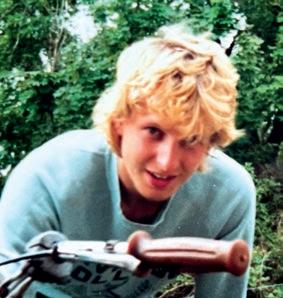
Nicholas J Hayman (1971-75)
At prep school, Nick was a good-looking blond-haired boy, academically capable and good at sports. But it was his vivacity and infectious enthusiasm that made him stand out and become so popular.
At St Paul’s, Nick had a cool, long hairstyle and was one of us who frequently fell afoul of Messrs Perkiss and McGuiness on the hair-length test. He found his favoured sport and became captain of squash, pushing on to regional competition. The sense of adventure that would rule his life, and his passion for two-wheeled excitement was developing and saw the two of us cycling from London to the South-West coast of France and back alone at the age of 16.
Nick read Mathematics at Bristol for two years but decided instead to explore computing with Honeywell. Meanwhile, he had started motorcycling, now able to go further afield in adventure and much faster. On an early trip to America, Nick met Grace and within months was starting life with her in San Francisco, finding work at a well-respected motorcycle dealership. He was an intelligent and gifted mechanic and deployed his natural charm with the shop’s customers to great effect.
Spare time was spent riding the roads or dirt tracks of the West Coast and Central America or on the AMA (American Motorcyclist Association) racetrack circuit where he proved to be highly competitive and very successful over many seasons.
In the 90s, Nick and a colleague mechanic were able to buy the business and developed it rapidly into the top US Ducati dealership with its own racing team – in no small part due to Nick’s astute management, drive and enthusiasm. It continues to prosper. Latterly, he was able to step back from work and continue to explore the world more fully, often on two wheels, one of a rare breed of those who live life to the full.
Francis Lovell (1971-1975)
54 ATRIUM SPRING / SUMMER 2024 OBITUARIES
William Robert Dunham (1953-58)
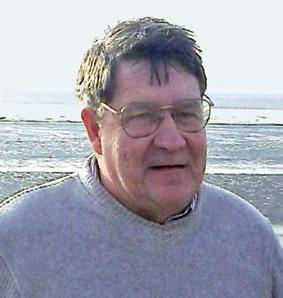
Richard B Morris (1967-70)
Richard Brian Morris, born 22 November 1952, passed away unexpectedly in his family home on 10 August 2023.
Richard obtained a degree in Material Science from Queen Mary University of London, which paved the way for his career in engineering. He began as an aerospace engineer for the renowned supersonic airliner, Concorde. Richard thoroughly enjoyed working and travelling on Concorde and had vivid memories of the incredible speeds the aircraft could achieve during flight. He also cherished the memory of the in-flight meal, which he described as the best lobster he had ever tasted.
Richard’s engineering talents were utilised in various military and domestic applications. He was a generous man who provided opportunities to those who would not have been able to achieve their goals and dreams without him. Richard’s favourite job was working on communication antennas at Cooper Antennas, where he enjoyed using his problem-solving skills and forged close relationships with his co-workers.
Richard loved travelling the world, experiencing new cultures, savouring different cuisines, and making new connections with people. One of his fondest memories was skiing with his beloved wife, Julie. He would often chuckle and recall how she could never manage to stay on her feet.
Richard was a devoted family man who always ensured the family history was handed down to the next generations. His grandchildren, Kiera and Layla, were the light of his life, and he enjoyed teaching them about various topics, ranging from butterflies and snails to fossils and everything else the world has to offer. Richard was genuinely loved, and he will be deeply missed by all his family and friends.
The Richard Morris Family
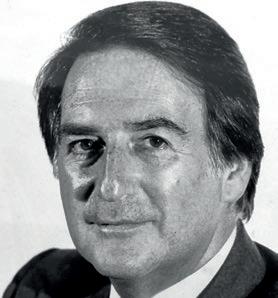
Michael Oliver (1946-47)
Michael Oliver was born in Cricklewood, North London. He was sent to the Lake District during the war and later went on to Oundle School. He returned to London and then attended St Paul’s. He was very happy there and always said that the teachers treated the pupils as adults. A welcome change. He decided to go into law and took his articles with a law firm in London. He later, with a law partner, started his own practice, Berger Oliver, in Piccadilly. He specialised in copyright and contract law and quickly amassed an enviable client list from the entertainment industry with many A-list actors, pop singers, directors, choreographers and impresarios. He sat on the board of the National Youth Theatre and LAMDA for many years.
In 1982 after sitting the California Bar exam, he moved to Los Angeles, something he had always wanted to do, where he continued to practice, taking a brief hiatus to become a Vice President at ICM, then one of the world’s largest talent agencies. Whilst there, he cofounded BAFTA LA which has become an enormously successful part of BAFTA. In 1991, he returned to London and became the chairman of a Westminster law firm. He was also invited to join the board of the Royal National Theatre where he served two terms.
Retiring in 1998, he moved to Umbria in Italy, a country, a people and a language that he loved. He lived a life there very different from all the star-studded years that had gone before.
He died peacefully at home one week short of his 93rd birthday. He is survived by his civil partner of 45 years.
Jeremy Poole, civil partner

Norma Rivers-Bland School Administrator (1974-1995)
Norma Rivers-Bland, who ‘held court’ in the Book Room of the School for more than 20 years, died on 11 December 2023. She was 93. Norma, affectionately known to a generation of boys as Mrs RubberBand, was born in 1930 in New Brighton, near Liverpool.
Norma’s home was just a hop and skip away from theatres, dance halls, and her Uncle Sam’s fairground. Her grandparents, a tailor and milliner, taught her to design and make clothes. Popular music was very much part of her everyday life, but Norma’s interests were elsewhere. At nine, she already had ambitions to attend art school, but war disrupted her plans.
After the war, she took secretarial work in Liverpool to help support her family. By this time, she was a beautiful young woman who attracted many admirers, including the trumpet player from a swing band and the fairground’s Wall of Death rider (who gave her a ride on the Wall of Death). But if she couldn’t become an artist herself, she would marry one. At 23, she married a graduate of the Liverpool School of Art, Geoffrey Rivers-Bland, with whom she had two children and moved to London.
When her husband was offered work in France, Norma jumped at the idea and the whole family moved to Aix-en-Provence, where she found her spiritual home. She was heartbroken about having to return after three years. The marriage did not survive the upheaval and now a single mum, she had to find work. She joined St Paul’s as an administrator in 1974, where she quickly won the respect and affection of the boys and staff alike.
Norma was a delightful person, beautiful, intelligent and always ready to share her joy of living. She spent a long and happy retirement doing what she enjoyed most, including travelling and pottery. She will be sadly missed by her family and the many friends who loved her dearly.
Claudia Rivers-Bland, daughter
56 ATRIUM SPRING / SUMMER 2024
OBITUARIES
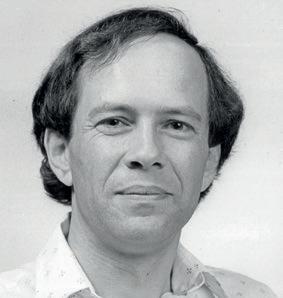
Godfrey P (Peter) Scott (1958-62)
Peter (known by his first name Godfrey until leaving St Paul’s, but thereafter always as Peter) was the eldest son of the distinguished mathematician D.B. Scott, Sussex University’s founding Professor of Mathematics. Peter followed his father’s footsteps into a notable academic career, being best known for the Scott core theorem.
Peter came to St Paul’s as a Foundation Scholar, studying mathematics under the celebrated A.J. Moakes. After graduating at Balliol, he took an MSc and then a PhD at the new Warwick University. He was appointed lecturer at Liverpool University in 1968, becoming Reader in 1984. In 1987 he became a mathematics professor at the University of Michigan, where he remained until his retirement in 2018. In 1986 he was awarded the London Mathematical Association’s Senior Berwick Prize, and in 2013 was elected Fellow of the American Mathematical Society.
Peter’s mathematical achievements are significant, but impenetrable to the layman. Interested mathematicians should perhaps review his University of Michigan memorial or his Wikipedia entry.
In addition to the strength of his research, Peter was a great expositor; his mathematical writing, as well as his approach to teaching, was inspirational to many mathematicians and will continue to be influential.
Peter was a kind, generous and gentle father, who loved playing with his children. He made them feel secure and prepared them for success, inspiring scientific and mathematical curiosity about the world through encouragement and unconditional love. He set a great example, accepting and appreciating others on their own merits with calmness and patience.
Peter died peacefully in Brighton, Michigan in September 2023, aged 78. He is survived by two daughters and a son, two granddaughters, two of his three brothers, and the wives from his three marriages. He will also be mourned by his beloved partner, his extended family and many dear friends.
Colin Scott (1960-63), brother
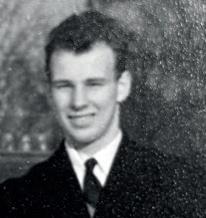
David J Sherwin (1951-55)
David Sherwin attended St Paul’s School from 1951-55. He then joined the Royal Navy where he trained in marine engineering, serving for 19 years. He took an MSc in Quality & Reliability Engineering at the University of Birmingham and a PhD in Reliability Applied to Maintenance at Loughborough University of Technology. He then worked for Y-ARD Ltd., a marine and off-shore consultancy, as Senior Consultant in Reliability. Two years later, in 1980, he returned to Birmingham University where he taught and researched Q&R and Maintenance Optimisation for 10 years. He was then appointed Professor of Maintenance Engineering at Queensland University of Technology, Brisbane, Australia, and as Professor of Terotechnology at Lund and Växjö Universities in Sweden in 1993.
Dr Sherwin was a Chartered Engineer (UK), a member of the Institution of Mechanical Engineers, formerly a Fellow of the Royal Statistical Society and the Institution of Plant Engineers and a Fellow of the I.E.Aust.
He retired in 2002 to Perth, Western Australia, where he took part in the discussions and conferences of the Asset Management Society. Lately, he had moved to Esperance, Western Australia, to be nearer family.
He was a proud father of two and a delighted grandfather to four and is survived by his wife, Diana (née Merwood), his two daughters Caroline and Erica, and three grandchildren, Alex, Carina and Yasmin.
Diana Sherwin, widow

John N Suggit (1935-41)
John recalled his first days in St Paul’s Great Hall; the mosaics of Colet and Erasmus and the stained-glass windows featuring former pupils, including John Milton. He was a studious boy, mastering Greek and Latin. This earned him scholarships and set a path for his life.
The daily commute from Norbiton to West Kensington ended in 1939, when the School was evacuated to a country house Easthampstead Park in Berkshire, pupils cycling to their new base. One night he was on bicycle patrol, spotting hostile paratroopers, when a bomb landed nearby. They learned that it had hit the headmaster of Wellington College where Science lessons were held.
John won an open scholarship to Oxford, but National Service scuppered that plan. Six weeks into training at Bovington Camp he was on a motorbike escorting a convoy when he crashed and smashed his head. Protected only by a beret, he was in a coma for weeks and doctors prepared him for the worst. After over a year of convalescence, he was discharged as permanently unfit. Against the odds, he took up his place at Oxford, following ‘Greats’ with Theology as his mind turned to a life of Christian ministry.
He married at the end of the war, moved to South Africa ‘for a short period’, was ordained and remained there till his death. He felt that he had a calling to make a difference as a minister, academic and theologian in this complex society. His multiple titles and post-nominals would fill an envelope or formal document, causing some hilarity for us, his children.
John’s nickname, ‘Phronimos’ is from the Greek meaning ‘practically wise’, and it was as a theologian that he was so respected, interpreting the meaning of the Bible in a changing society, challenging established dogma.
As a humble man, he was overawed by the accolades from ex-students, clergy, bishops and family on his 100th birthday, his mind undimmed by age. John Suggit was born on 14 April 1922 and died on 30 July 2023.
Nicholas Suggit, son
57
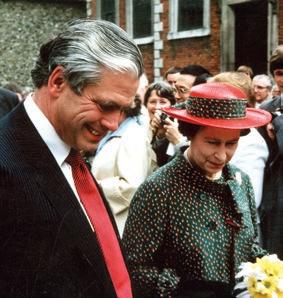
John L Thorn (1939-43)
In 1968, when student riots swept across Europe, John Thorn was rumbling his own revolution in the cloisters of Winchester College.
Thorn championed the ballads of Bob Dylan and permitted the boys to grow their hair; he reduced compulsory attendance at chapel; he turned the gym into a theatre and the sanatorium into an art school. He fostered science as a subject, channelled money into arts scholarships and shocked the board by selling the School’s original manuscript of Malory’s Le Morte d’Arthur to the British Library to pay for state school bursaries.
Thorn raised the status of opera and classical music at the School. A performance of Beethoven’s Fidelio summed up his philosophy of education: the championing of freedom over despotism.
Winchester’s music school became one of the finest in Britain. As a director of the Royal Opera House, Thorn invited pupils to join him and his wife, Veronica, in the royal box. He combined his liberalism with “small c” conservatism; defending independent schools and their charitable status: “Abolish the independent schools and you abolish some of the riches of civilisation,” he said.
John Thorn was born in Chiswick in 1925. His parents encouraged their son to aspire in life; Thorn won a scholarship to St Paul’s. Before taking up a second scholarship to Corpus Christi College, Cambridge, he served for two years from 1943 in the destroyer HMS Eskimo, sweeping for German E-boats.
After completing a first in the history tripos, Thorn became head of history at Bristol. At 36, he was appointed headmaster of Repton in Derbyshire. His yearning for social change and the reforms he began to introduce, such as abolishing corporal punishment, angered traditionalists. He moved on to become headmaster of Winchester, where he taught a full timetable and wrote textbooks. In retirement Thorn taught liberal humanist subjects; he was trustee of the British Museum and a governor of three schools.
Thorn’s wife Veronica died in 1999; John Thorn died in October 2023, aged 98, and is survived by their son and daughter. Adapted from the obituary published in The Times on 13 November 2023
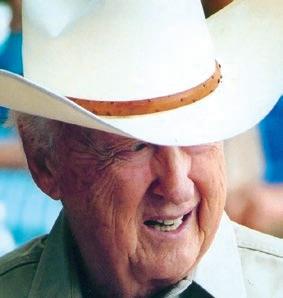
G Grainger Weston (1938-39)
Born in Toronto in 1923, Grainger Weston was the heir apparent who got away. As the eldest son of Garfield Weston, he was on the board of the family’s UK company that controlled Twinings, Ryvita, Fortnum & Mason, Heal’s, Primark, and Selfridges. Instead, he built Frenchman’s Cove in Jamaica, and later amassed one of the biggest ranches in Texas, leaving the businesses to be run by his brothers.
Grainger’s father Garfield bought his first UK biscuit maker in 1933 and moved his family to Marlow, Buckinghamshire. Grainger went to Christ Church, Oxford, but when war broke out, he joined the Royal Canadian Navy as an officer on patrol ships hunting German U-boats.
After the war, Grainger married socialite Caroline, who had grown up on the Beaulieu estate. His father sent them to manage the family’s biscuit factory in Texas.
Grainger and Caroline had five children, all of whom had to spend holidays in the factory. Galvin, the eldest, runs Charbonnel et Walker. Their fifth child, Glenn, was the victim of a house fire – Galvin was badly burnt trying to save him. Grainger and Caroline divorced but remained friends; she died in 2017.
At Frenchman’s Cove, Grainger’s wife Caroline supervised the design of the hotel suites and luxury villas. The Westons invited glittering names of the day to stay, such as Elizabeth Taylor and Richard Burton, Marlon Brando, Noël Coward and Ian Fleming. The resort featured in the first Bond film, Dr No, and Princess Anne’s 16th birthday party was held there.
In 1969, Grainger bought an Israeli car ferry and converted it into a Caribbean cruise liner. He sold it in 1975 and moved back to Texas. He bought land there and devoted the rest of his life to the Santa Clara Ranch, expanding it over the next 60 years to 4,000 acres. Grainger Weston died on 7 October 2023, aged 99.
“He was an entrepreneurial spirit,” his son Galvin said. “An original man of fierce independence… who creatively questioned authority at every opportunity.”
Adapted from the obituary published in The Times on 25 November 2023
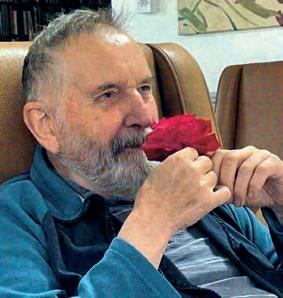
Hugh J H Williams (1961-64)
My older brother Hugh went first to Colet Court, then on to St Paul’s with a scholarship. From St Paul’s he went on to Guy’s Hospital Medical School and, in his final year, took many prizes, notably the University of London Gold Prize for Medicine. After qualification he specialised in haematology and became a consultant haematologist at Maidstone, working on the same site, Oakwood, where his father worked as a consultant psychiatrist years earlier.
He married Yvonne Glen, a fellow Guy’s student who also became a consultant pathologist, but she worked in east Kent near their home in Canterbury (a significant daily commute for Hugh). Two children arrived and were slotted into the routine of music, good food, and dinner party conversation. Hugh also fitted in teaching, writing textbook chapters, and specialist journal articles, whilst managing the garden, walking the dog, and running the local shoot.
Hugh firmly believed that you should take an interest in everything: an ‘omnivorous attitude’ as he called it. He was a keen sportsman, always playing (usually squash) with passion.
Hugh’s final years were sadly clouded by dementia, possibly brought on by a blow to the head sustained during a game of squash. He survived Covid, but pneumonia then claimed his life. Adrian Williams (1965-69), brother
58 ATRIUM SPRING / SUMMER 2024 OBITUARIES
In his book Random Walk. Memoir of an Itinerant, Richard Dale remembers his “generally happy” prep school years
Richard’s Story
It was a watershed moment for me when, aged eight, I was sent to Colet Court in Hammersmith, where I was to spend more than five relatively happy years. I started off in the lowest form under the redoubtable Miss Sawdor but I was soon promoted to the next form up under the elegant Miss Waterman. After a short time, I did well enough to join the scholarship stream but this was a promotion too far or too fast and I was returned to Miss Waterman.
There was a master at Colet Court of whom we were all a bit wary. This was Major Robinson or “Robo”, a short, rotund figure with a booming voice whose conduct was that of a man accustomed to military command. I had a run-in with Robo very early when I was caught fighting with another boy in Miss Sawdor’s classroom. He cuffed me over the head and gave me a dressing down before leaving the room. I then found that I had blood pouring from the back of my head and the reasonable supposition of my fellow pupils was that Robo had drawn blood. I knew better because in my scrap with the other boy I had hit my head hard on a metal clothes hook but I said nothing about this after I had been sent to matron for a dressing. This episode gave a boost to my street cred.
When aged ten our family moved outside London, I joined the small boarding house of 50-60 boys. One of our favourite amusements on rainy weekends, in addition to board games and chess, was ‘Howzat!’ A player would choose his test team and the dice would be thrown for the batsmen to indicate runs scored, with a Howzat appeal triggered by one face of the dice. A further throw would decide whether out, not out, no ball etc. It was a curious scene in the boarders’
recreation room with the boys huddled over score sheets and periodic shouts of “Sutcliffe has scored a century!” or “Bedser is on a hat-trick”.
I had assumed, as did my teachers, that after Colet Court I would carry on to St Paul’s senior school along with my friends and classmates. But family politics dictated otherwise and I was entered for Marlborough College.
At the time of taking my Common Entrance to Marlborough, things were going well for me at Colet Court. I was in an A stream form, boxed for the School, held a position of high command in scouts as Patrol Leader of the Otters and was now Vice Captain of the Boarding House. I felt privileged when I was driven to the nearby music studio of my cello teacher, Eileen Croxford, and her pianist husband, David Parkhouse, both prominent concert performers, to play chamber music together. My final report generously commented that I was “a great loss to the musical life of the School”.
But all was not well. I was upset at being removed from the School where I had been happy and whether for this or other reasons, I ploughed my Common Entrance exam in June of that year. I was sent to a crammer in Somerset and in early November I retook Common Entrance which I
passed very comfortably. My spirits were further raised by a kind note I received from my old headmaster at Colet Court:
“Dear Richard, Hearty congratulations on your success. We are all delighted here though sad that our hope that after all you might stay at St Paul’s will not be realised. I hope that you will not forget us here and that when you are in London you will try to spare a few moments to visit your old school…”
So ended my generally happy prep school years. Marlborough College was to be altogether more challenging.

59 PAST TIMES
Neil Wates (1999-2004) meets
The Pringles –
Sebastian (1997-2002), Benedict (1999-2004) and Tristan (2001-06)

For eldest brother Sebastian, it was a chance injury that put him on his current path. ‘I hurt my back pretty badly playing sport at Colet Court and my mum got me a guitar from Argos to help me pass the time during recovery. I became absolutely transfixed with the concept of song writing about that time – the formation, the output, the whole process’. Perhaps it helped that music was then pretty heavily Britishguitar dominated – Blur, Oasis, Pulp etc. Despite his later success, Sebastian did not study music at St Paul’s or take lessons. Not benefitting from one-on-one tutoring nor studying it academically meant no direct encouragement from teachers and no technical context. While he regrets a missed opportunity, he recognises there was clearly more than enough drive and community from his peers. He is both proud and complimentary of the music scene of which he was part.
The music school was at that point underneath the Chapel, fittingly with a cross-shaped corridor, and while he is too respectful to draw a direct comparison to worship, the imagery
is not lost on him either – his musical journey at school was transformative. His time was spent in and out of different bands, mostly jamming in the corridors (rehearsal rooms were for ‘proper’ lessons). Occasionally they could sneak in to take an empty room and it was that attitude that bred a very collegiate atmosphere – there was no rivalry between any of the other bands at School as a result (something that would be important later in his career).
Sebastian has particularly fond memories of his time in the English Department and he speaks of the teaching influence of John Venning (English department 1989-2014) and Joe Sutcliffe (English department 1994-2009). He went on to study English Literature at Bristol and while at university he kept up his musical connections from School, travelling to Oxford to visit school friends, gigging there and in Bristol. A musical connection with Gilbert Vieritch (1997-2002) and Graham Dickson (introduced to them by an OP connection) led to the formation, in 2007, of Crystal Fighters. Sebastian
and Gilbert, despite being direct contemporaries, had never been in a band together, but neither were they rivals – they bonded over shared musical experience and direction and success came quickly.
Sebastian’s love of storytelling and fable – a direct result of his English at School – was fundamental to the formation of the band. They chose to tell, through music and performance, the story of a bandmates’ relatives adventures in the Basque region. Merging these traditional elements with modern electronic and dance influences, the result is a refreshing fusion of old and new. NME gave them an apt early review “Crystal Fighters have stood out as one of the most interesting prospects by a mile –something genuinely new sounding.” The sound quickly found its audience. 15 years and five albums later and they are a beloved staple of festivals across the world.
‘I never meant to be a musician though’, says Sebastian. ‘I was a sportsman first. Music wasn’t even a hobby but it quickly overtook everything else’.
60 ATRIUM SPRING / SUMMER 2024 PAULINE RELATIVES
Sebastian Pringle
This ‘if you are going to do something, do it properly’ attitude is clearly genetic. For one, all three brothers are accomplished sportsmen. Middle brother Benedict was captain of the 1st XV. Having left Nottingham University with a politics degree he wangled some work experience in advertising, working on an Adidas account in Amsterdam. ‘I was hooked immediately. I was desperate to avoid advertising as my dad did it, but it proved revelatory’. He has been in advertising ever since and is currently a partner at The&Partnership.
As with his brothers, Benedict excels in more than one sphere. It is his second avatar politics that has led to his greater accomplishments. In 2008 he started Political Advertising, then a blog, that has led him to become one of the best-known commentators on political campaigning. Self-styled as a commentary ‘on the grubbiest part of the dirtiest business’, Benedict is now a regular correspondent, speaker and talking head in newsrooms across the political spectrum. In late 2023 he released his debut book Primed: Five Election Narratives To Win Your Party’s Nomination. In it, Benedict describes a universal framework ‘for crafting winning narratives in primary election campaigns’, drawing in particular from the worlds of psychology and political marketing.
Benedict was introduced to politics during his time at School. ‘I remember Andrew Ellam’s (Economics department 1999-2004) A Level Politics classes. They were electric’. He is particularly complimentary about Ellam’s style of teaching. ‘He was talking about American election logistics and we

were hanging on his every word. It can’t have been because of the subject matter’. Keen-eyed students of American politics will have noted that Benedict’s time studying A Level Politics coincided with a Colet fellowship being given to Josh Hawley, then a fresh-faced Stanford graduate but now a two-term Republican senator and the first member of the senate to object to the certification of Biden’s victory on 6 January 2021 – an election he still believes was stolen. Benedict remembers little of Mr Hawley, save for his contribution of a 2002 US midterm postal vote form, ‘hanging chads’ and all.
Benedict was Chair of Nottingham University Labour Club, then a sabbatical officer for the NUS council and a whisker away from working for the Labour Party directly thereafter. ‘If the famous election that never was had actually happened in 2007, who knows where I would be now. I was offered a job by the Labour Party, but then the election never happened and the offer disappeared. I’m quite glad though; they have done nothing but lose since and I don’t know how I would have handled that’.
While Benedict and Sebastian were in the same tutor set under Terry Peters (Maths department 1988-2012), youngest brother Tristan was not. ‘I think my parents knew by then that they had to get it right – I was the youngest son after all’ he says, winding his elder brothers up. Tristan’s tutor was Bernard O’Keeffe (English department 1994-2017) and he credits him for being a fundamental part of a school career that was both rewarding and formative. ‘It taught me the value of entrepreneurship and the worth of a social conscience’. Two things that he has carried with him throughout his professional life.
Tristan went on to Bristol to study Italian. He benefited from the Erasmus scheme and studied for a year at the University of Venice. ‘With the scheme you could study what you wanted when you were at the new university’, he says ‘and I was delighted to study History of Jazz and Modern Electronic Music’. Returning to Bristol, he worked with Foodcycle, a food redistribution charity then in its nascent stages but now with 84 locations providing free meals to those that need it and working to reduce UK food waste. Entrepreneurial spirit brought him home to London, where he had
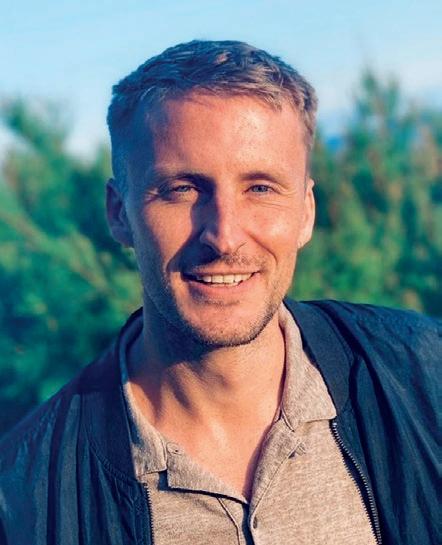
successfully pitched for a food pop-up at the 2012 Olympic Park. He had to teach himself the hospitality business in the months leading up to it so got a job as a pizza chef. ‘That was my first experience of real life, I think – working under an angry head chef blasting heavy metal from 7am in the morning’.
A relationship took him to Palo Alto and with it the need to start professional life anew in another country. Daunting enough for some. Tristan taught himself to code and it was this second chapter that, as per his brothers, led to his success. He was quickly coding for clients in the geographic home of web-based enterprise and, in 2019, returned to London to work with a start-up. He has run his own company since 2021.
The three brothers all credit St Paul’s with their multi-discipline approach to life and are grateful for their family dynamic during that time. They are thankful for encouraging parents, gracious about their siblings’ talents and proud of one another’s accomplishments. Did you ever resent having two brothers at school? Did it ever mean that you did or did not do something? A resounding ‘No’ from all three.
Sebastian is mindful of the worth of positive change at St Paul’s, though. ‘I don’t think the education I had then would suit pupils today’. He is wary of the pitfalls of any echo chamber and values keeping an open mind. Tristan sums up a shared opinion ‘I think it was the ability to land on our feet that we took most from School. The sense that you were privileged to be able to apply yourself to anything. We were lucky and are grateful’.
61
Benedict Pringle
Tristan Pringle
‘Never let the truth get in the way of a good story’
Tobias Follett (1974-77) shares his experience of working with Boris Johnson
In early 2005 I worked as Associate Producer on a BBC Roman History series presented by Boris Johnson. My main job, said the Director David Jeffcock, would be to make sure Boris didn’t keep losing his passport.
His personal chaos had caused kittens on a previous shoot. ‘And check for shirt-tail continuity’, said David. Boris’ shirt was usually halftucked in at the front, hanging out at the back. The Director was fine with Boris’ dishevelled look on camera, but the problem was he did sometimes tuck his shirt in, making his shirt shoot in and out of his trousers in the edit.
On my watch I made sure Boris never lost his passport. But he would mislay some combination of wallet, diary and manuscript of the book of the series on a regular basis. When loose-sheet hand-written pages weren’t floating away, he was leaving the whole stack where he last sat
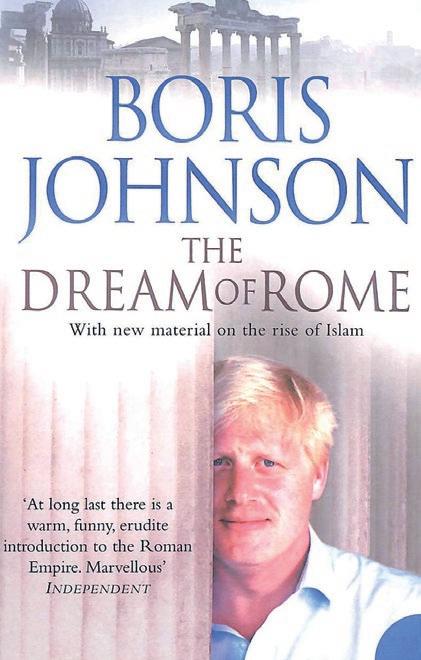
down. It was my job to retrace his steps to find his lost masterpiece, once meaning a long, hot walk back around the vast Roman ruins in Lyon.
The series The Dream of Rome was asking how the ancient Romans managed to rule Europe for so long and whether they might have lessons for the European community today. It was a thin conceit but a fun way to get Boris on TV and to make yet another programme about the ever-popular topic of ancient history.
Boris never showed anything but favour towards the EU while making the series. And he was unusually liberal when it came to immigration issues, often citing his Turkish heritage in evidence. But he was the journalist who had perfected the art of the European-bureaucracy-gone-mad anecdote. So, I thought it might make for a nice sequence if he could raise the issue on camera with an Italian professor I had found who specialised in the history of Ancient Roman bureaucracy.
‘So what, Boris, are your two or three very best EU bent banana stories?’, I asked.
I can’t remember his exact reply but the conversation went very much like this (I am sure he won’t mind me ‘mildly sandpapering’ some quotations, in homage to his past career at The Times):
‘Um Um, I made them all up’. ‘No, come on Boris, be serious’ ‘Er, let me think. There was one (looks sheepish, scrunches hair about, represses giggle): something to do with standardising European coffins’ ‘Come on Boris, I need two or three stories. What’s the point in doing this sequence with just one?’
‘Well there aren’t any others.’
‘Er…OK, tell me more about the
Euro-coffins story. It sounds great!’
‘Well, um, it turned out it had nothing to do with EU regulation. It was actually something about courier companies trying to standardise the cost of transporting coffins of differing weights across Europe’.
So, there you have it. In his own words the slew of silly EU bureaucracy stories that launched his journalistic, then political, careers were all entirely invented.
So, there you have it. In his own words the slew of silly EU bureaucracy stories that launched his journalistic, then political, careers were all entirely invented. Maybe he has remembered or heard of some genuine examples since but at the time, we were unable to raise the issue in our BBC series because Boris could not corroborate a single anecdote. The next day, while discussing another possible topic, Boris joked: ‘Never let the truth get in the way of a good story’. It was the first time I had heard that Mark Twain line.
The Dream of Rome went down well. Boris was a hit. The BBC commissioned a second history series, After Rome, Holy War and Conquest I was delighted when, in 2007, I was again asked to work with Boris on the episode dedicated to Moorish Spain. He was a great travelling companion and the best presenter I had ever worked with.
When Boris kept mislaying his manuscript for ‘The Dream of Rome’ I asked him how come he wasn’t more careful with it? He ran the risk of losing
62 ATRIUM SPRING / SUMMER 2024
LAST WORD




Our not-for-profit health club in the heart of Thames Ditton, Surrey
Originally set up by the Old Paulines, this Club offers discounted rates for alumni and staff of St Paul’s School.
With a 25m pool, a two-storey gym, 4 fitness studios, 6 squash courtsplus spa facilities - we have everything you need to kick-start your fitness journey in 2024 !
StNicholasRoad|ThamesDitton|KT70PW w w w . c o l e t s . c o . u k BRAND NEW BAR + RESTAURANT --NOW OPEN! at COLET S
MORE THAN JUST A GYM
Home of the Old Paulines sports teams
IN FO@COLETS .CO.UK
St Paul’s School Reunion
6 June 2024
Those who left St Paul’s in 2019, 2014, 2004, 1994 and 1984 are invited to catch up with their old classmates back at school on Thursday 6 June.
Enjoy a tour of the new buildings with drinks and food from 6pm, followed by further drinks at The Bridge.
For more information, please email: community@stpaulsschool.org.uk

DIARY 2024
MARCH
28 March
Earliest Vintage Lunch
12 noon at School
APRIL
22 April
Entrepreneurs’ Network
MAY
TBC
Pauline Continuum cycle ride
JUNE
6 June
5, 10, 20, 30 and 40 year Reunions 6pm School and The Bridge
12 June
Summer Drinks and Comedy Night 6pm George IV, Chiswick
20 June
OPC AGM
6pm School
24 June
Lost Years’ Dinner – Apposition Dinner for those who missed out in 2020 and 2021
Mercers’ Hall
JULY
3 July
Leavers’ Ceremony for the newest Old Paulines 5pm School
OCTOBER
10 October
OPC Annual Dinner 6.30pm School

NOVEMBER 8 November Remembrance Service 10:45am School
For more information, please contact James Grant, Associate Director of Alumni Relations on jsg@stpaulsschool.org.uk
USEFUL CONTACTS
Old Pauline Club: Sam Turner, Secretary opclubhonsec@gmail.com
Atrium Editorial Board: Jeremy Withers Green
jeremy.withersgreen@gmail.com
Old Pauline Cricket Club: Chris Berkett berkettc@gmail.com
Old Pauline Football Club: Ciaran Harries
ciaran.harries@btinternet.com
Old Pauline Rugby Club: Tim Morris tim.morris500@gmail.com
Old Pauline Fives: Sam Roberts
sjr@stpaulsschool.org.uk
Old Pauline Squash: Russell Burns rgburns9984@gmail.com
Colet Boat Club: Sam Turner
samueltrnr@gmail.com
OVERSEAS BRANCHES AND HUBS:
Australia: Canberra: Nick Bailey nijilb@bigpond.com
Sydney: Freddie Blencke fredrik.blencke@gmail.com
Victoria: Tristan Kitchener tristan@kitchenerpartners.com.au
Canada: Amir Rahemtulla amirhms_@hotmail.com
Greece: Menelaos Pangalos menelaospangalos@hotmail.com
Hong Kong: Arun Nigam anigam@arunnigam.com
Israel: Michael Horesh mshoresh@netvision.net.il
Spain:
Murray Grainger Grainger2008@gmail.com
South Africa: Josh Dovey
Josh.Dovey@omgsa.co.za
USA:
New York: Simon Strauss Simon@sstrauss.net
San Francisco: Nick Josefowitz nicholas@josefowitz.com
West Coast: Craig Hughes craig@rungie.com
Washington DC: Quentin Fidance qfidance@googlemail.com
Paul’s School is a charitable company, limited by guarantee, registered in England. Registered office at Lonsdale Road, London SW13 9JT. Registered Company Number 6141973. Registered Charity Number 1119619.
St
to book now Old Pauline Club ST PAUL’S ALUMNI ASSOCIATION
Scan the QR Code














































































































